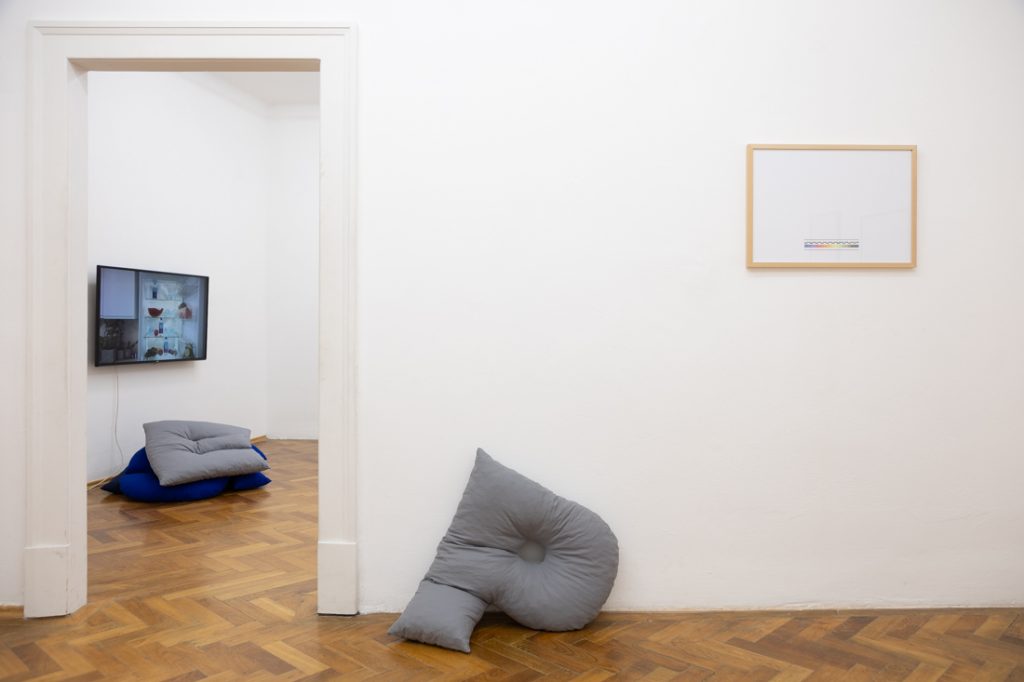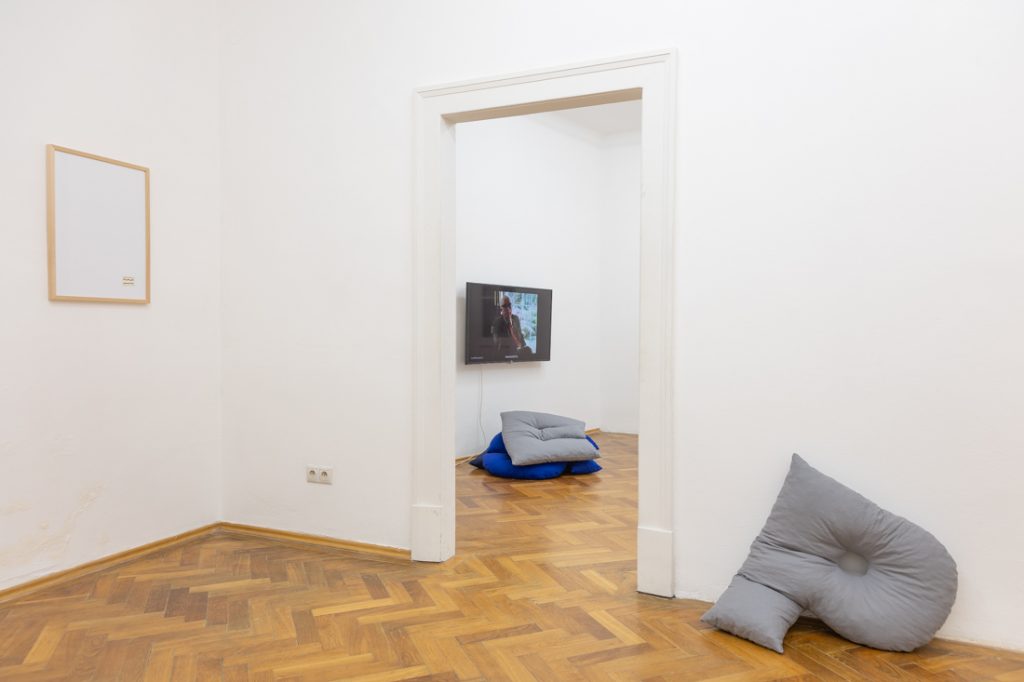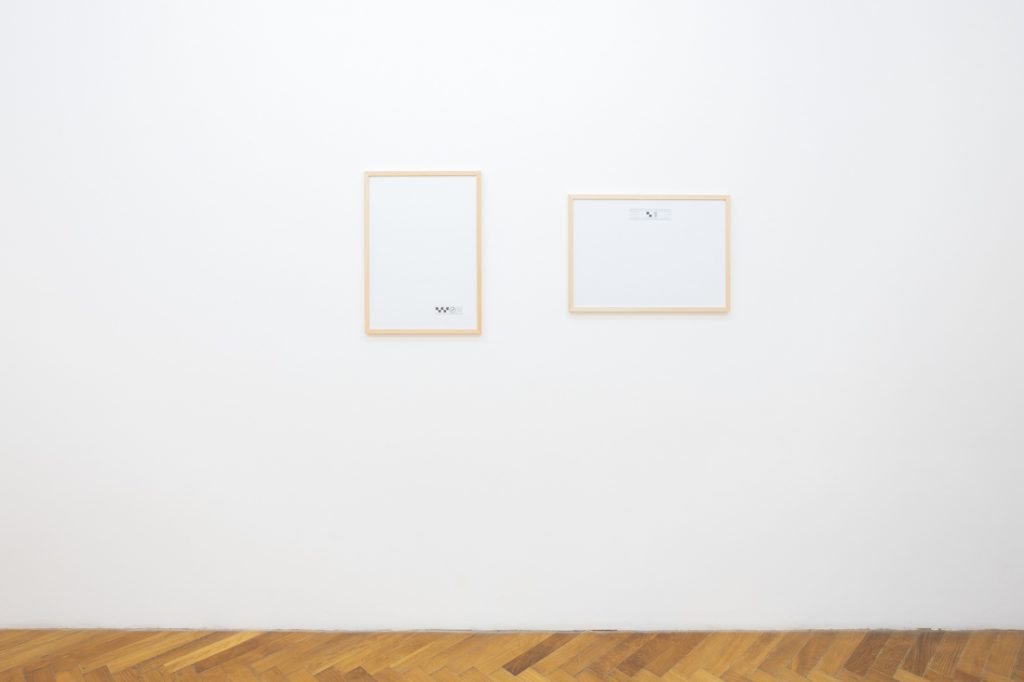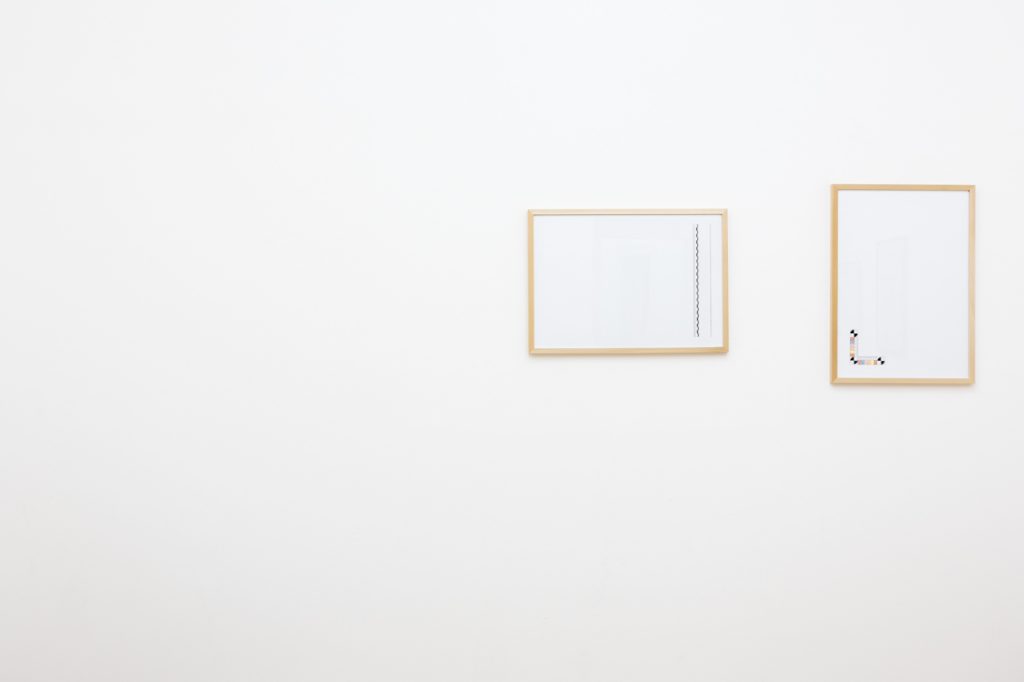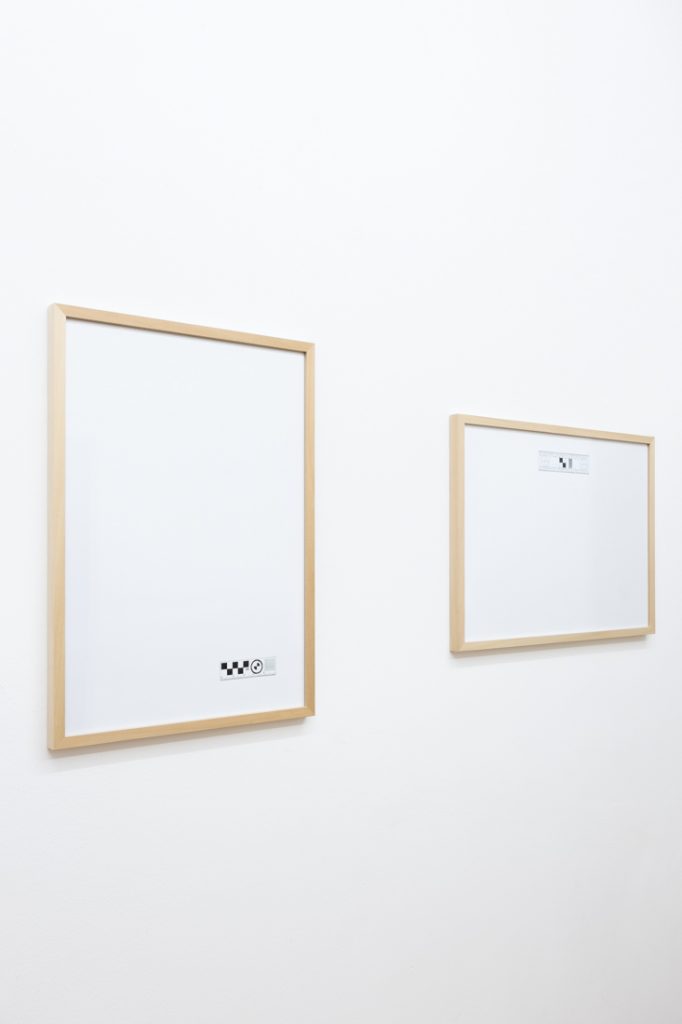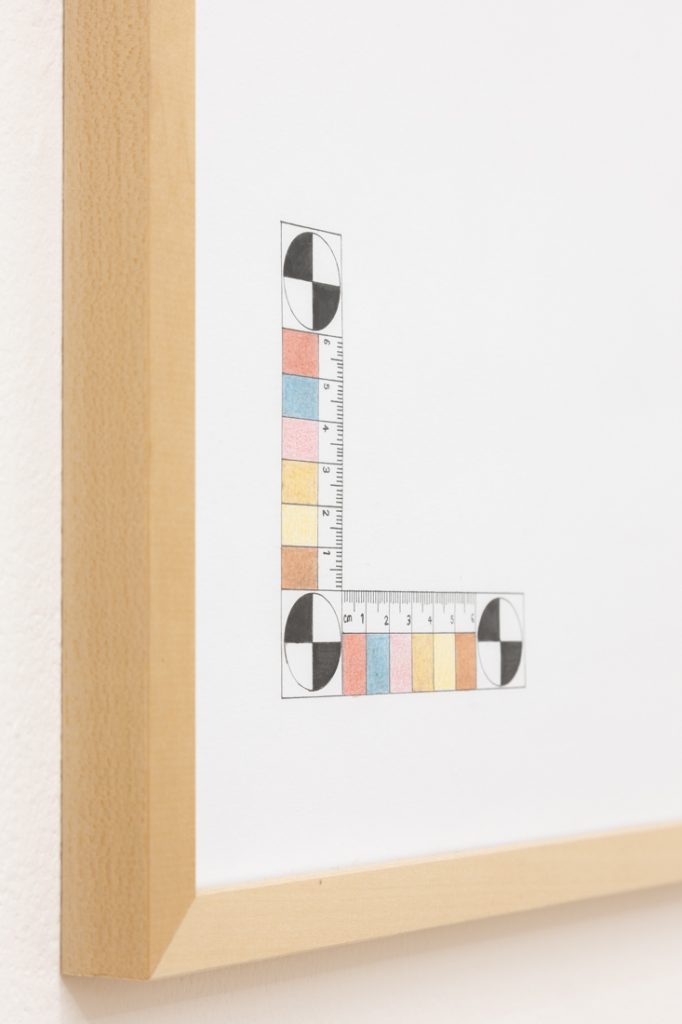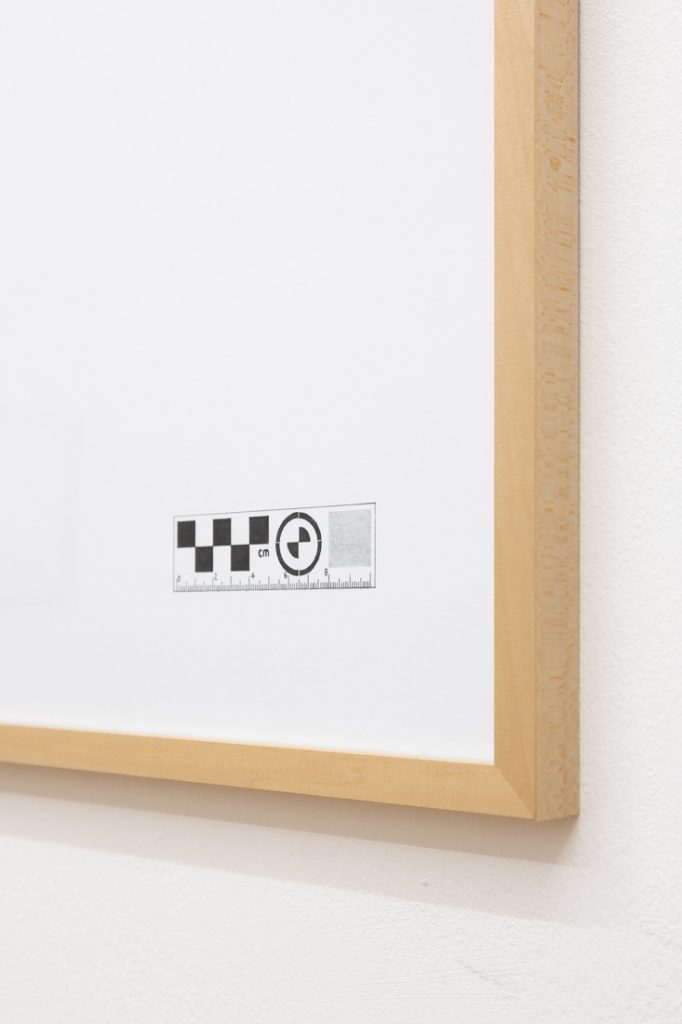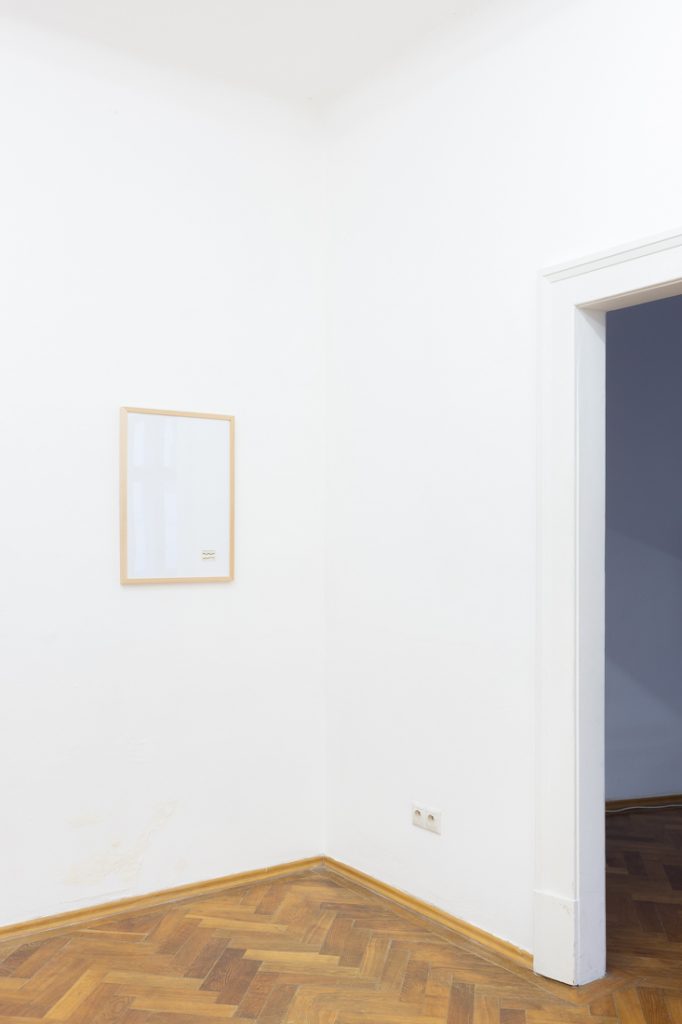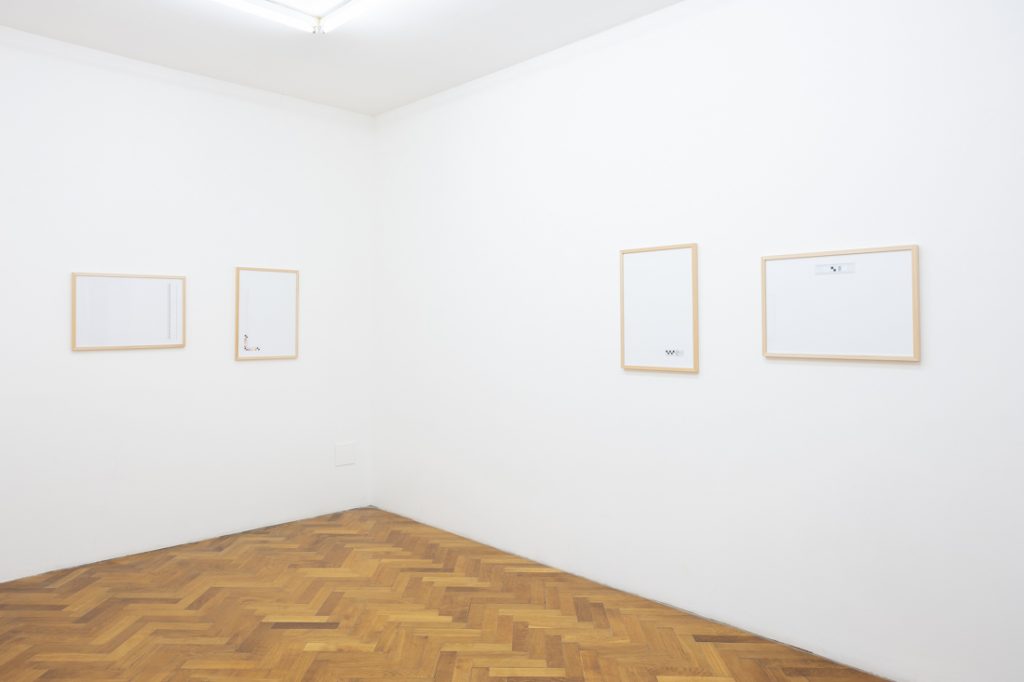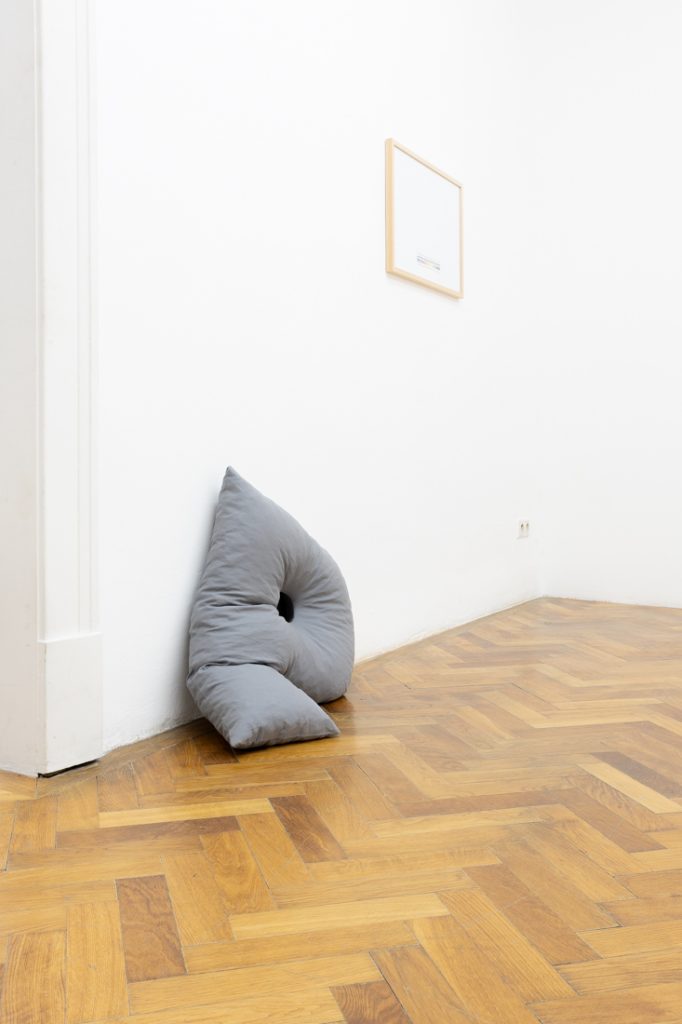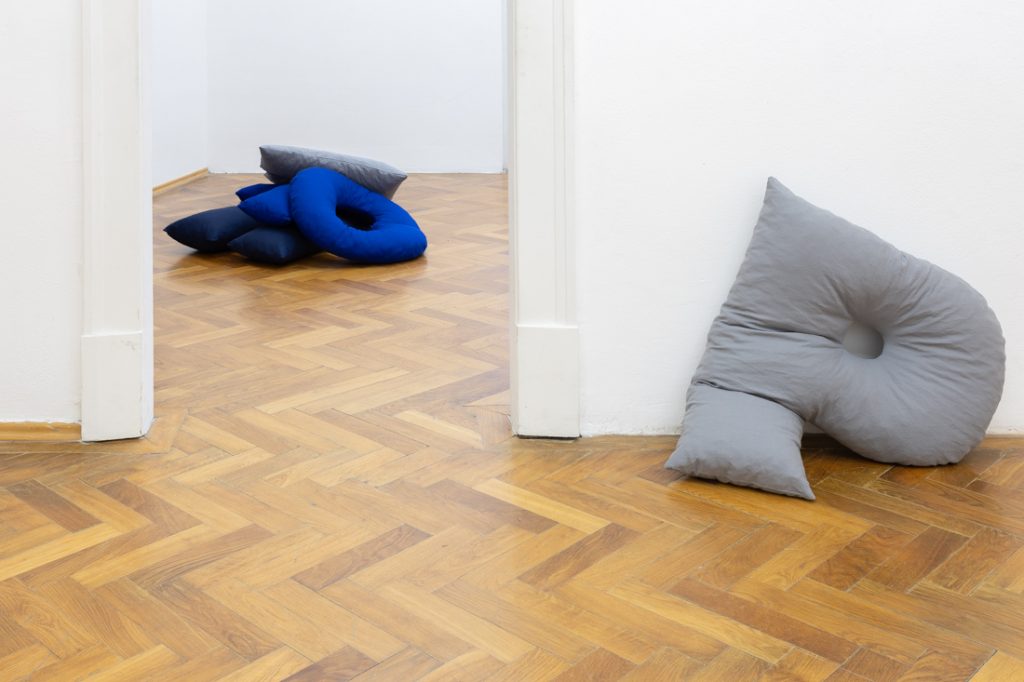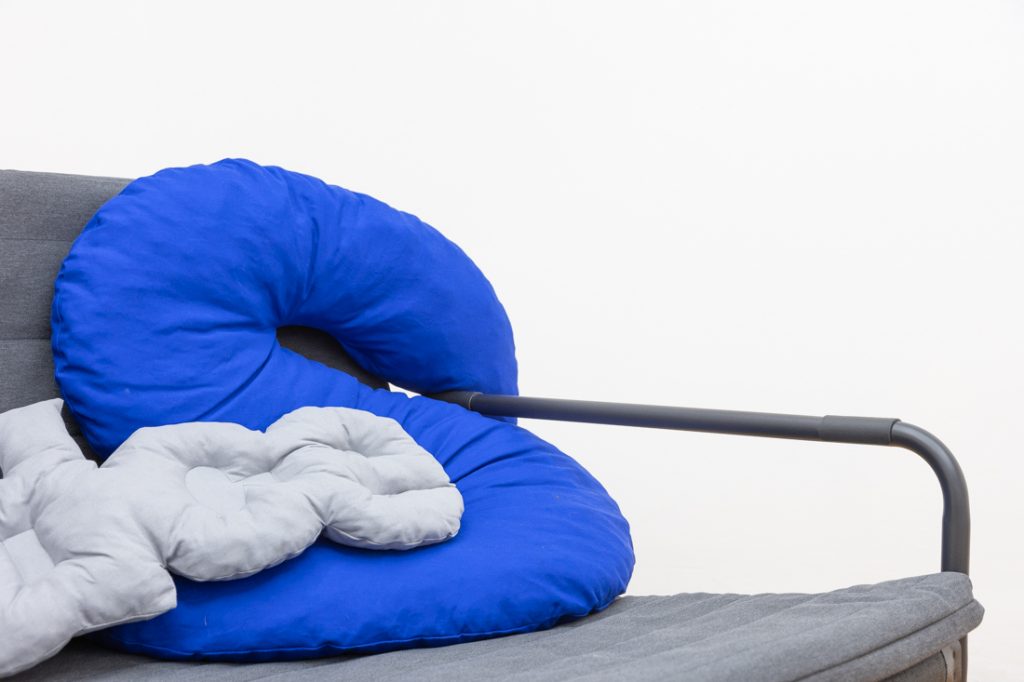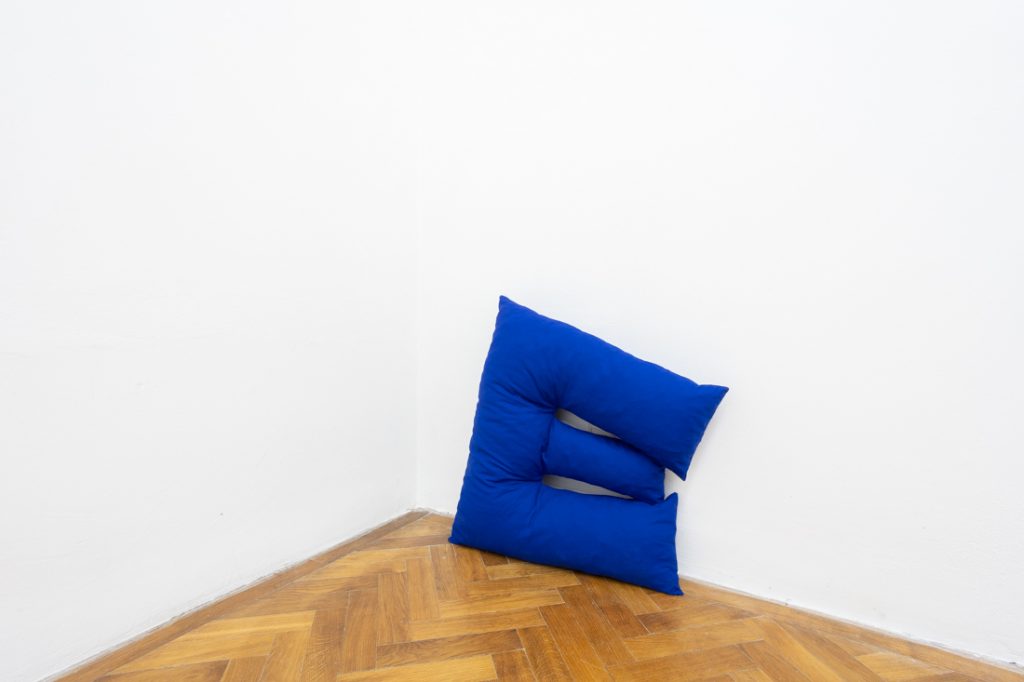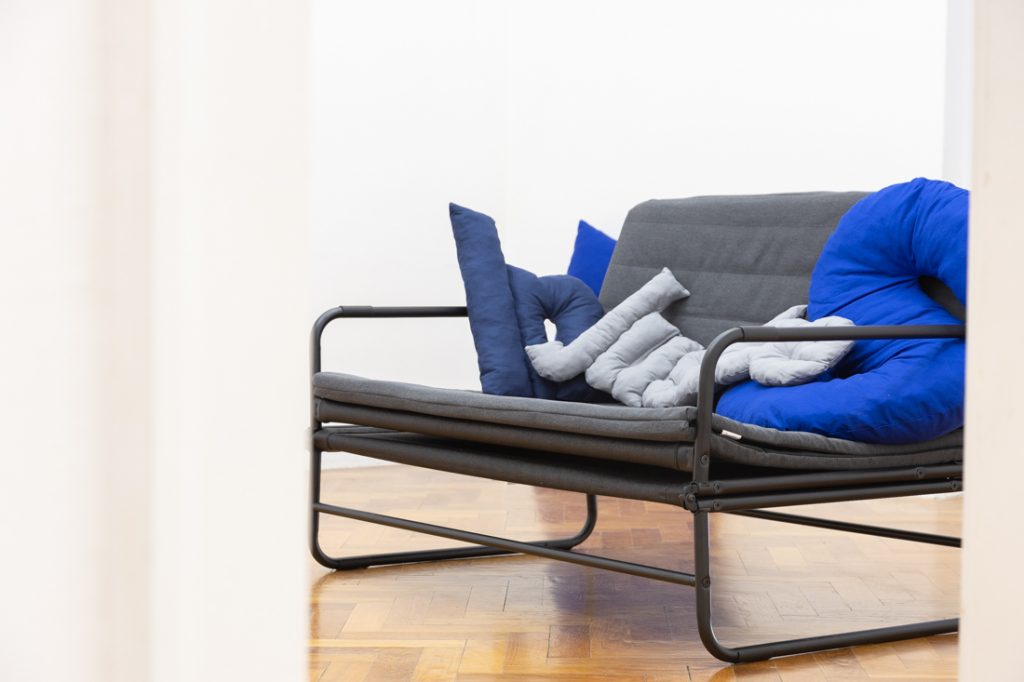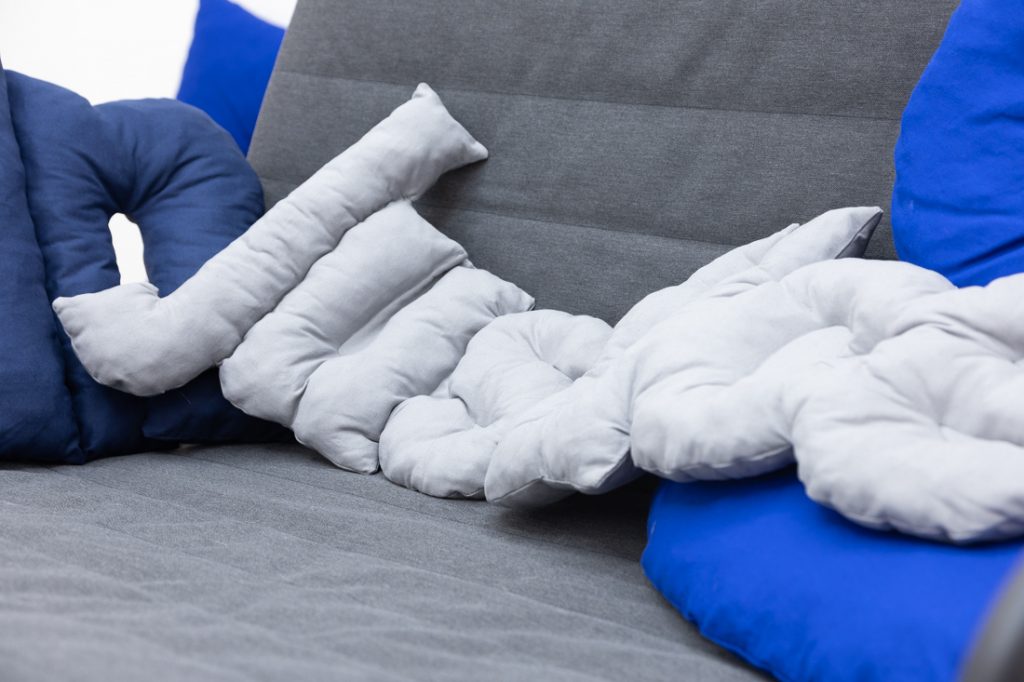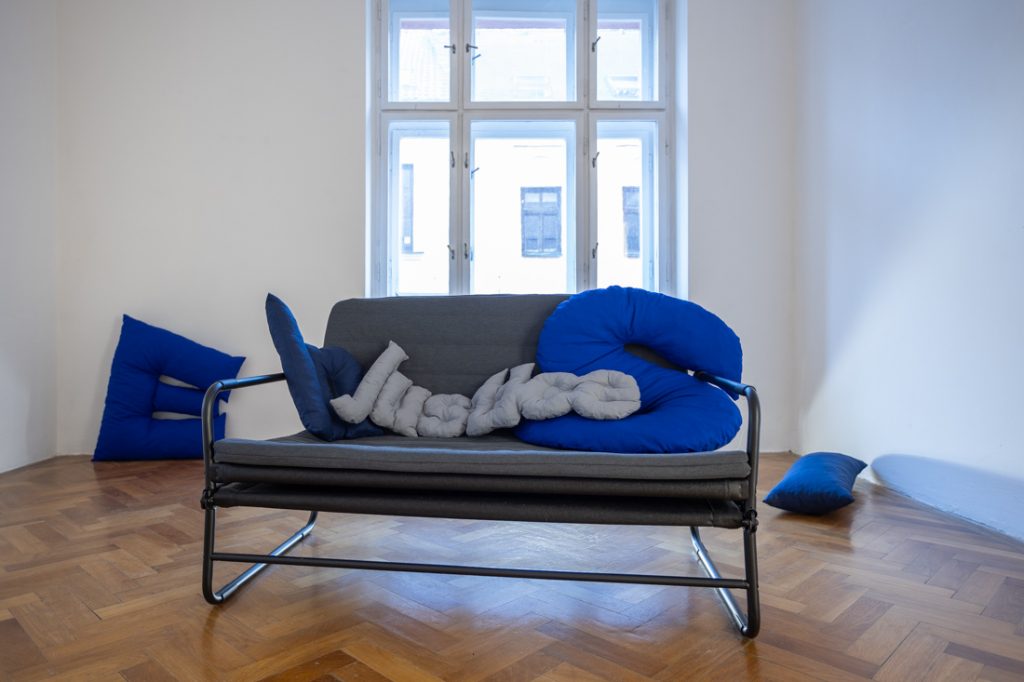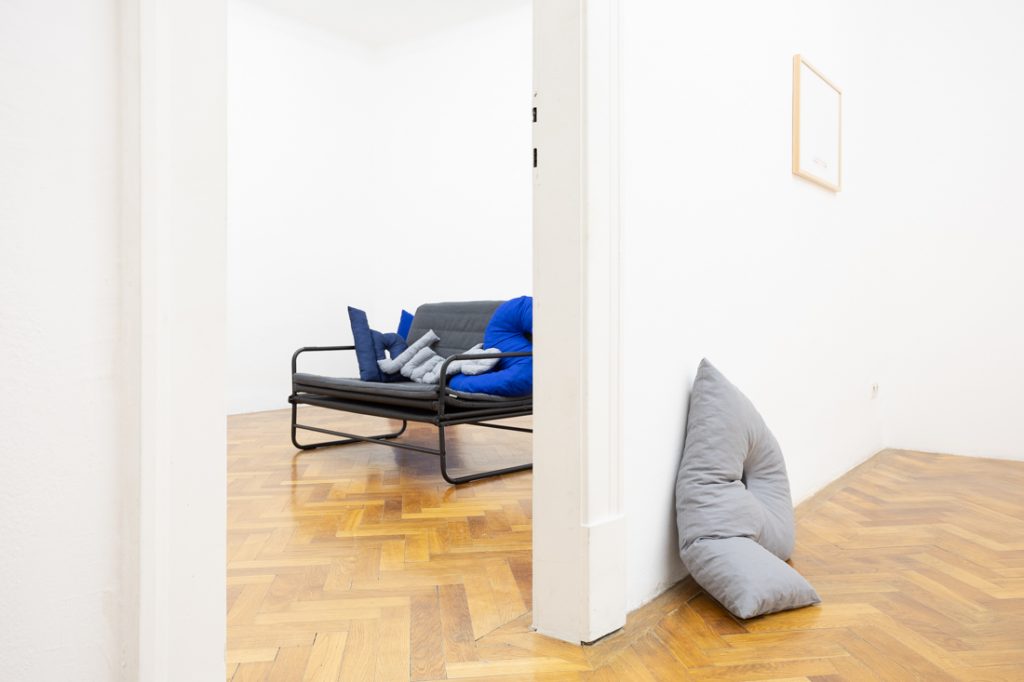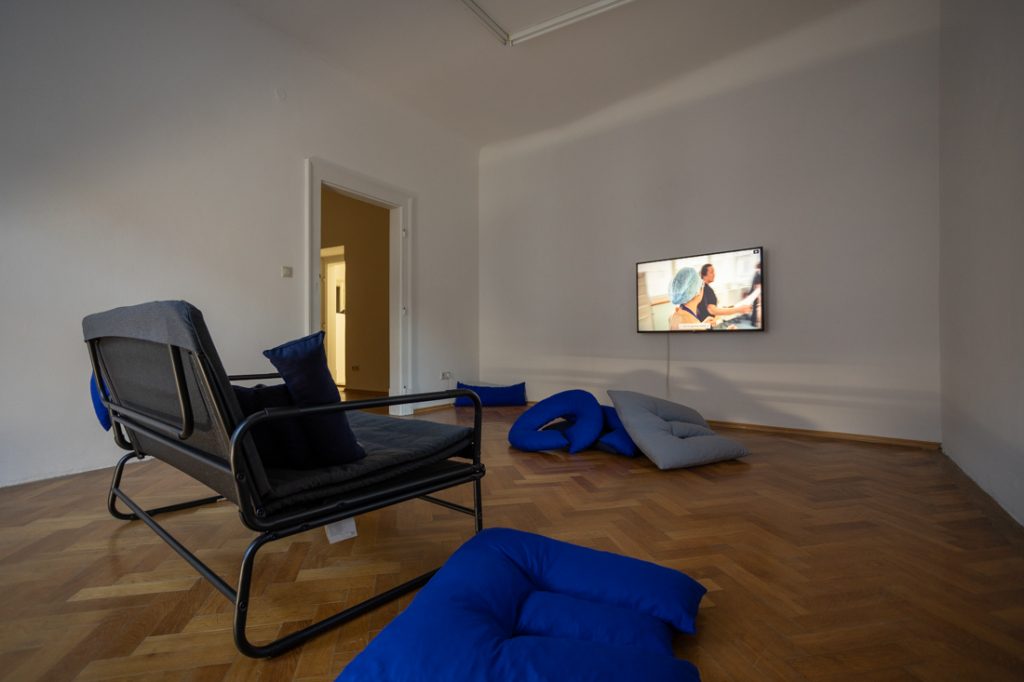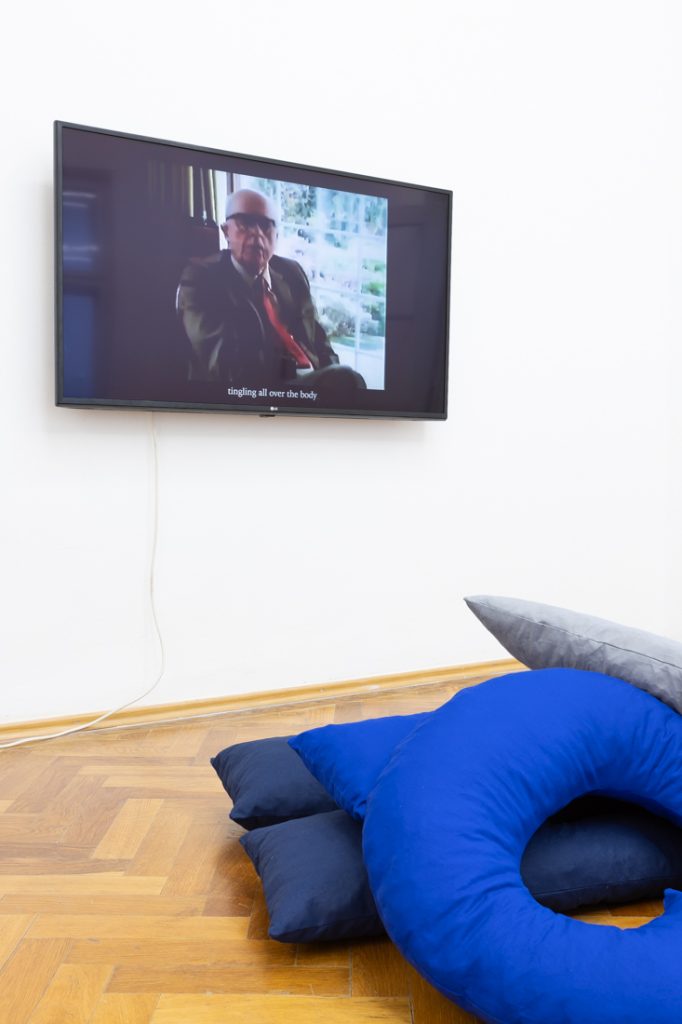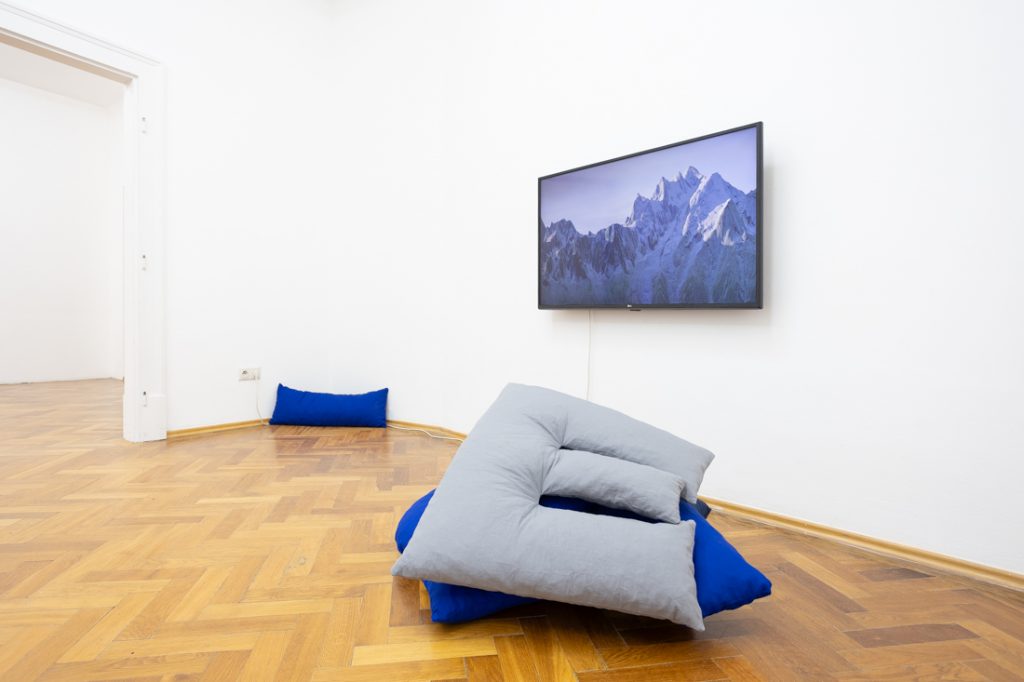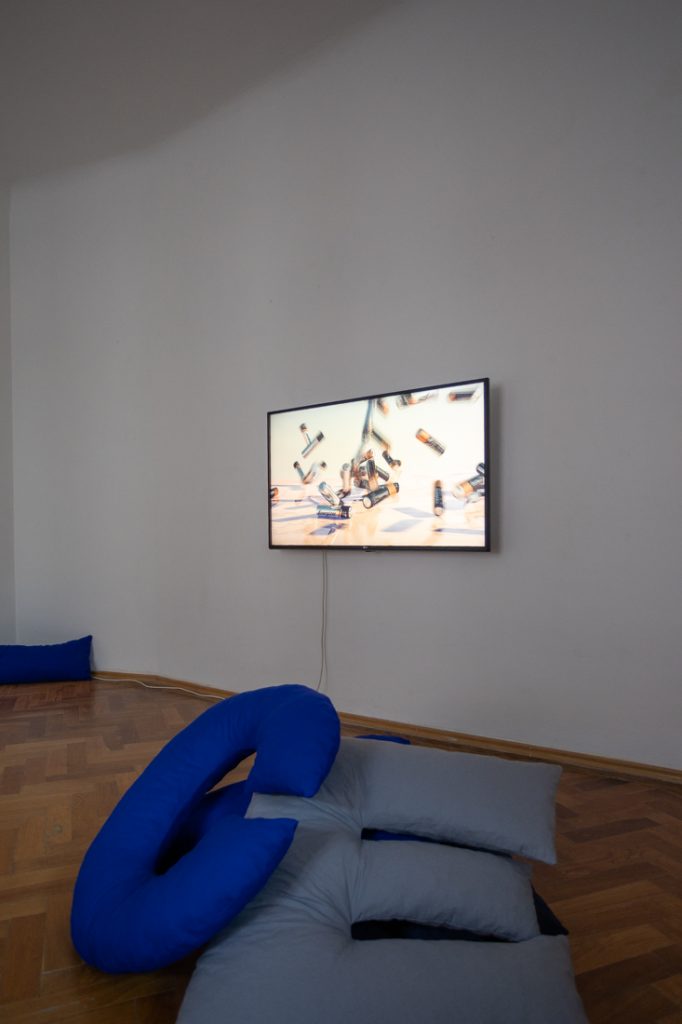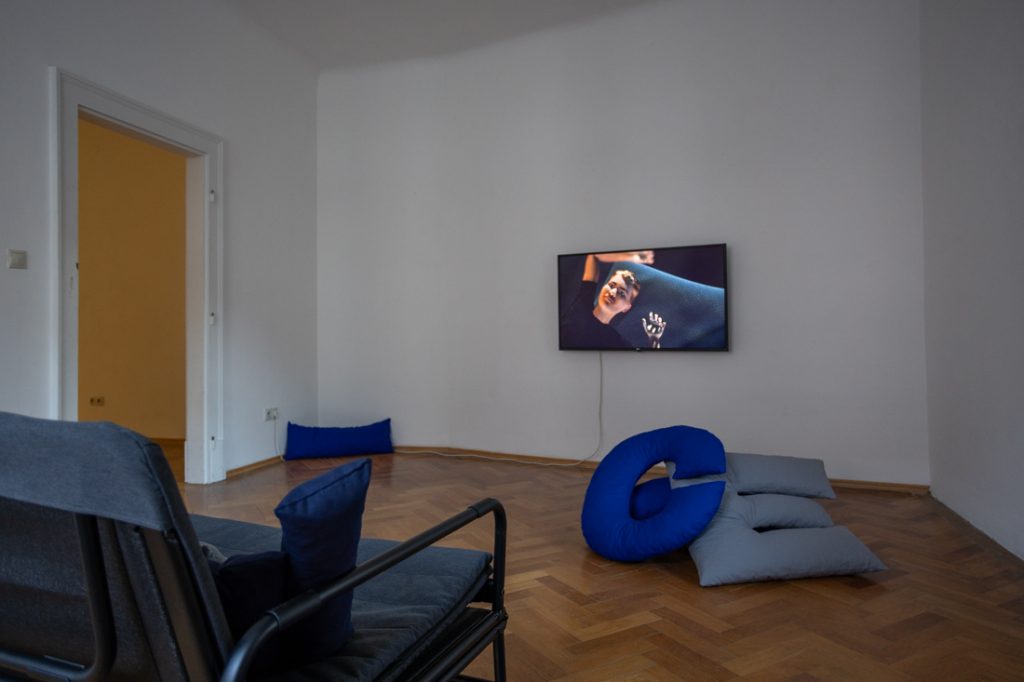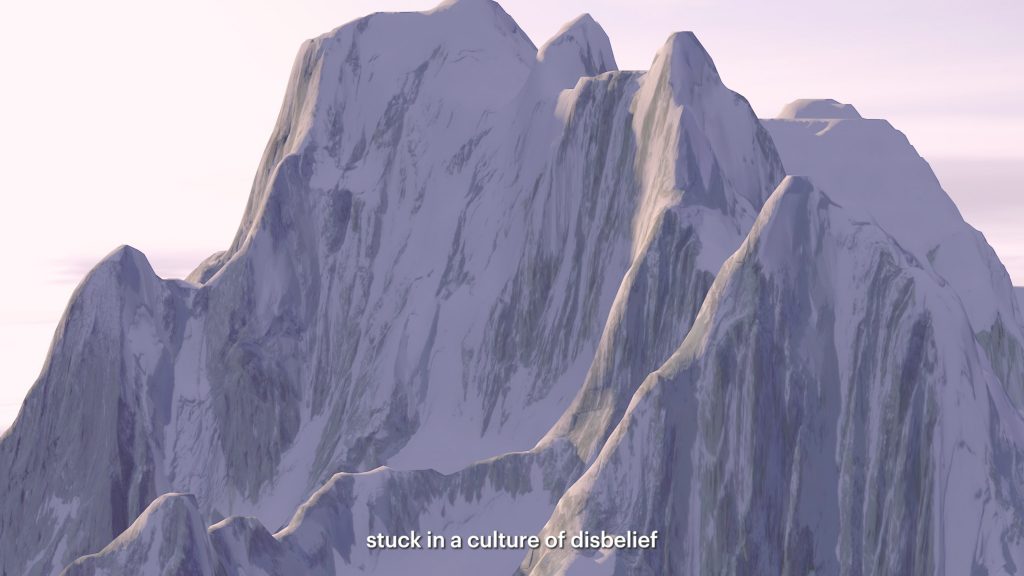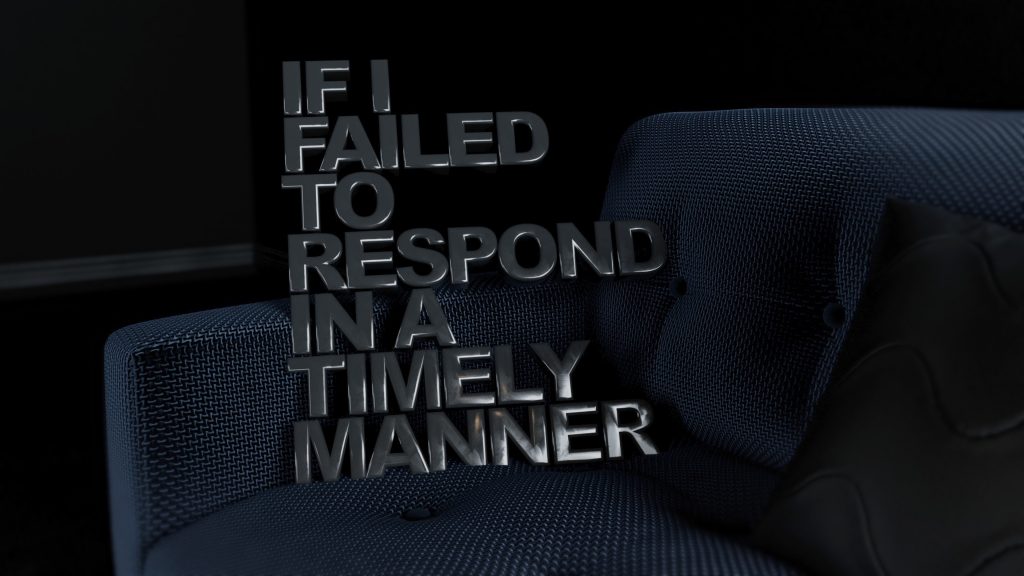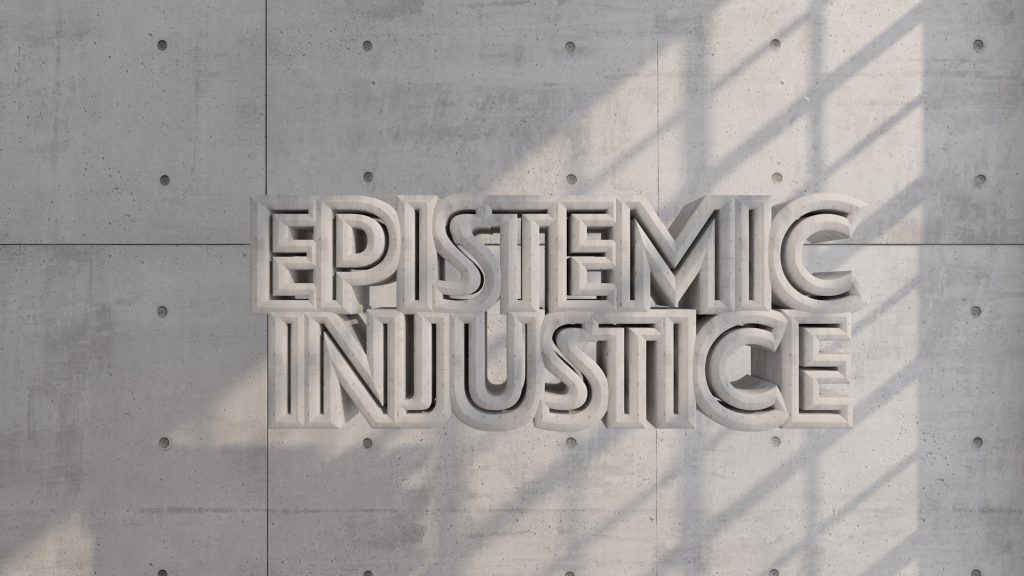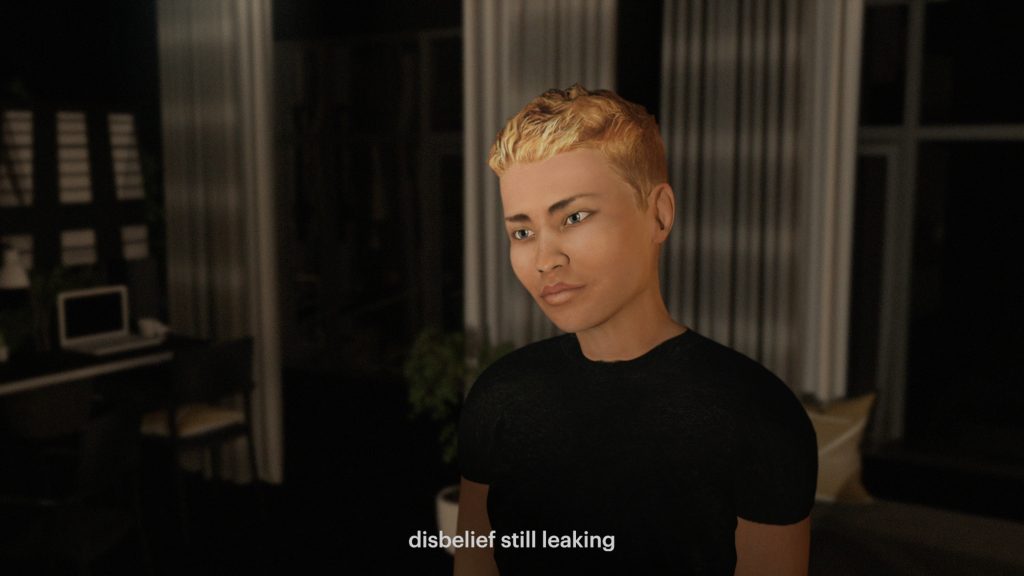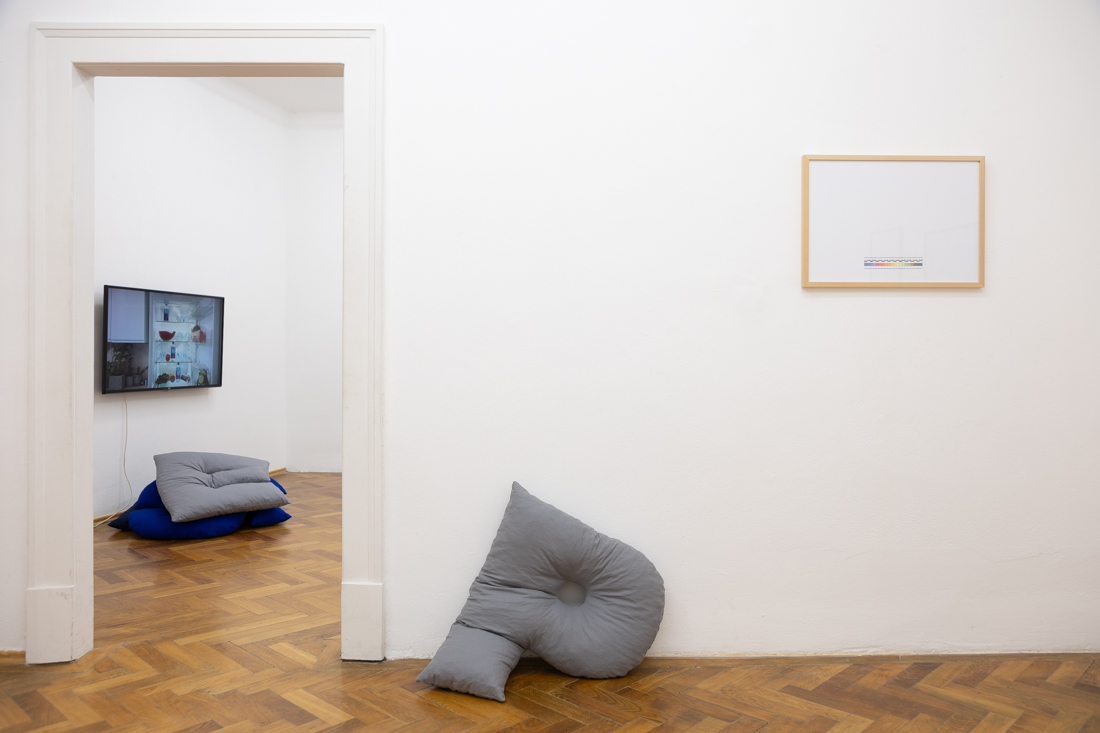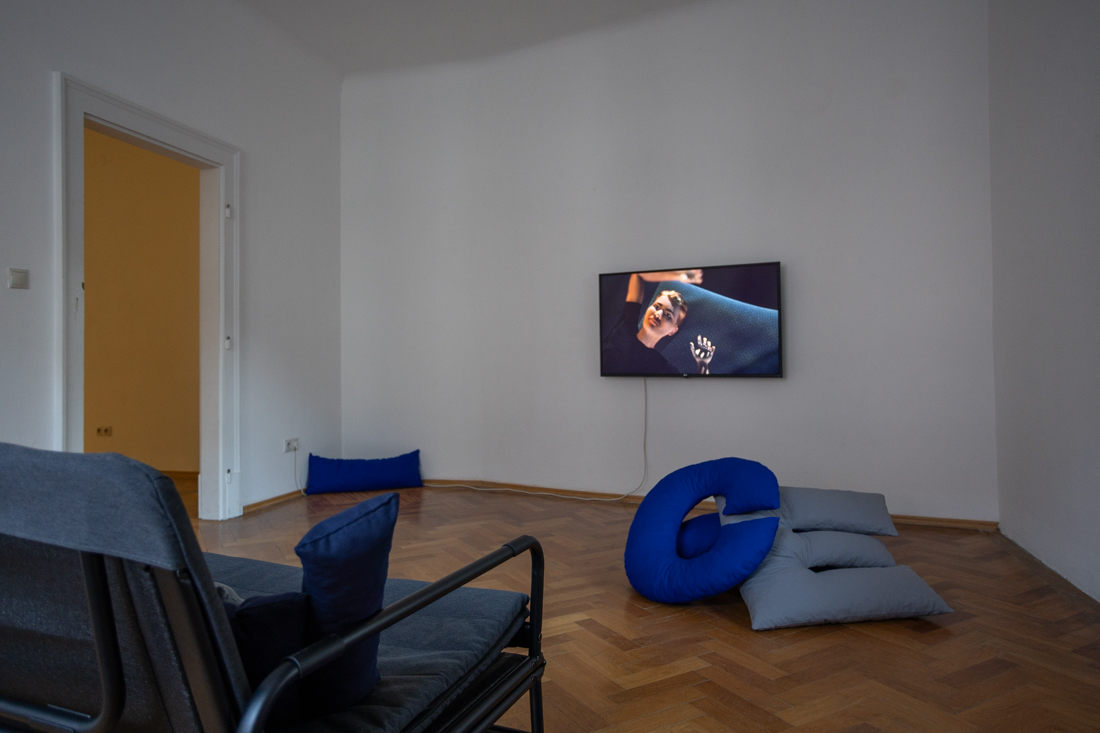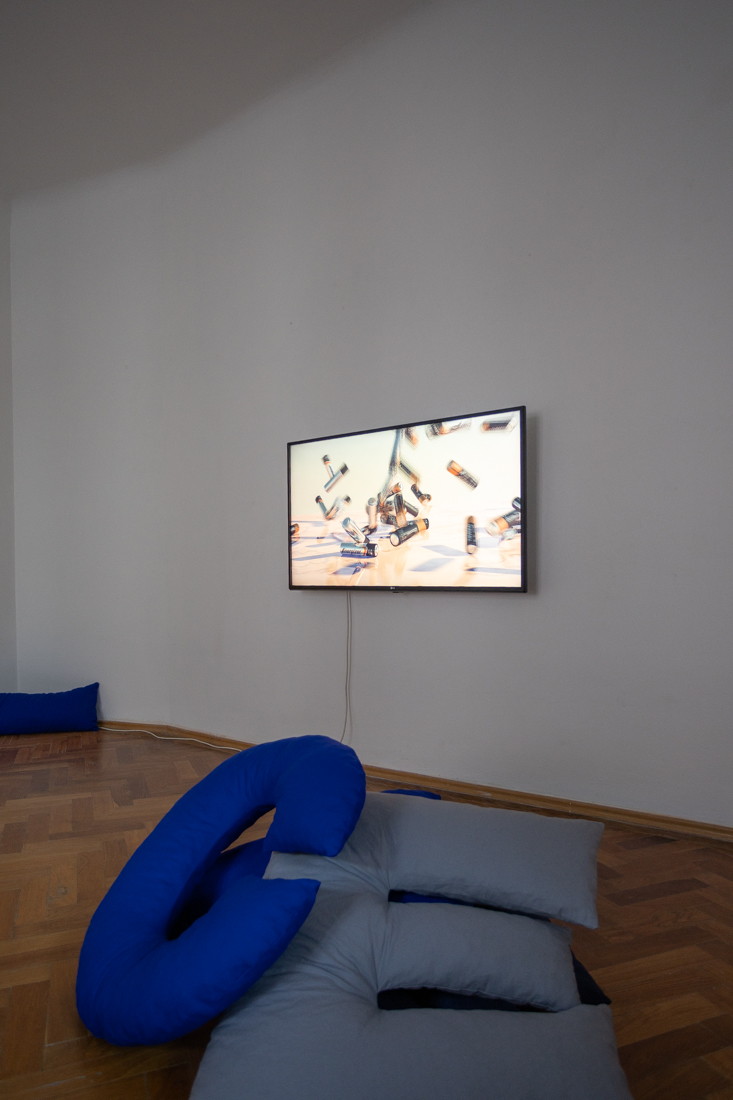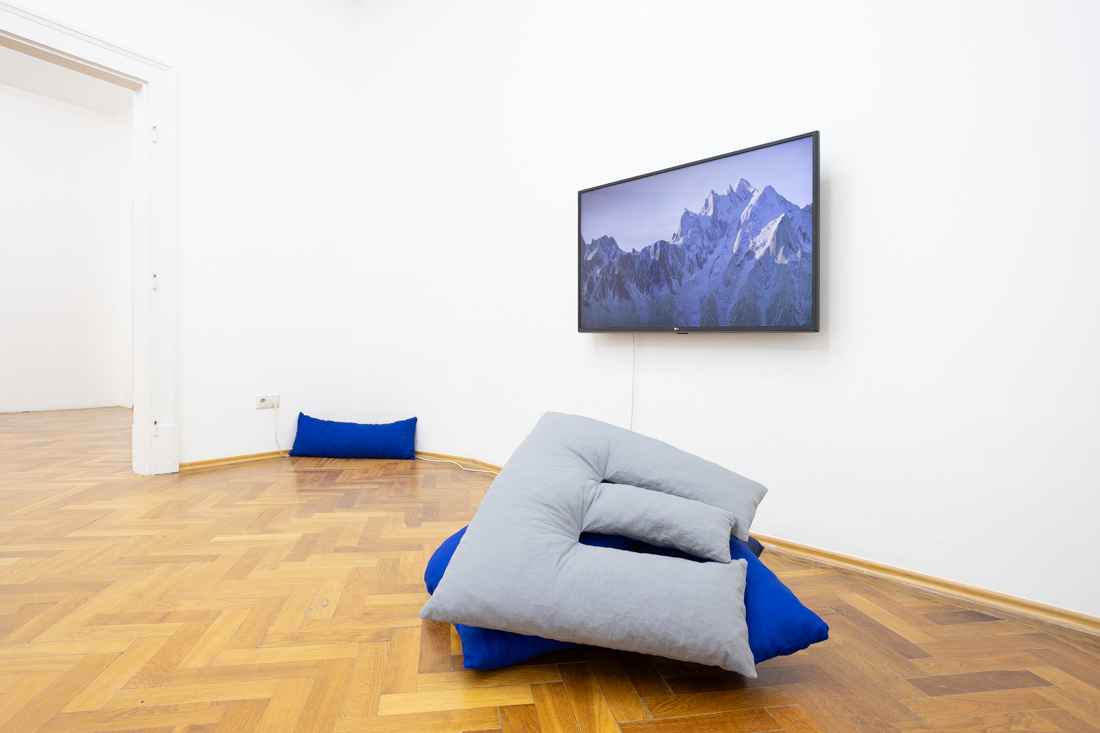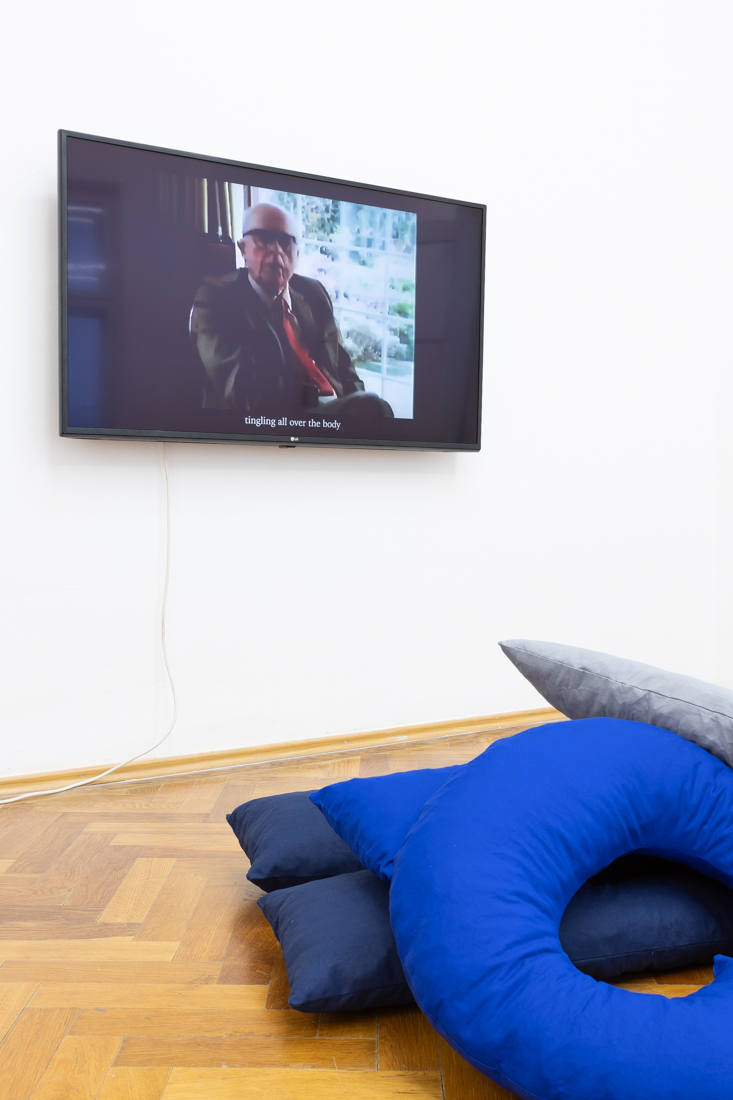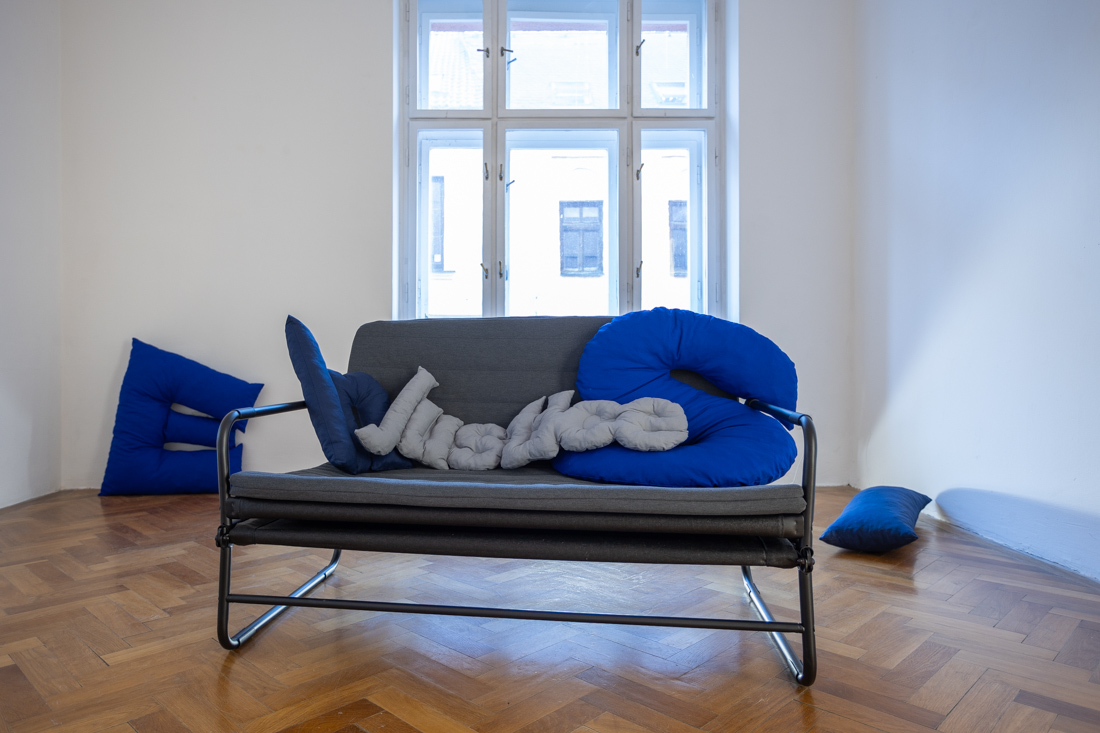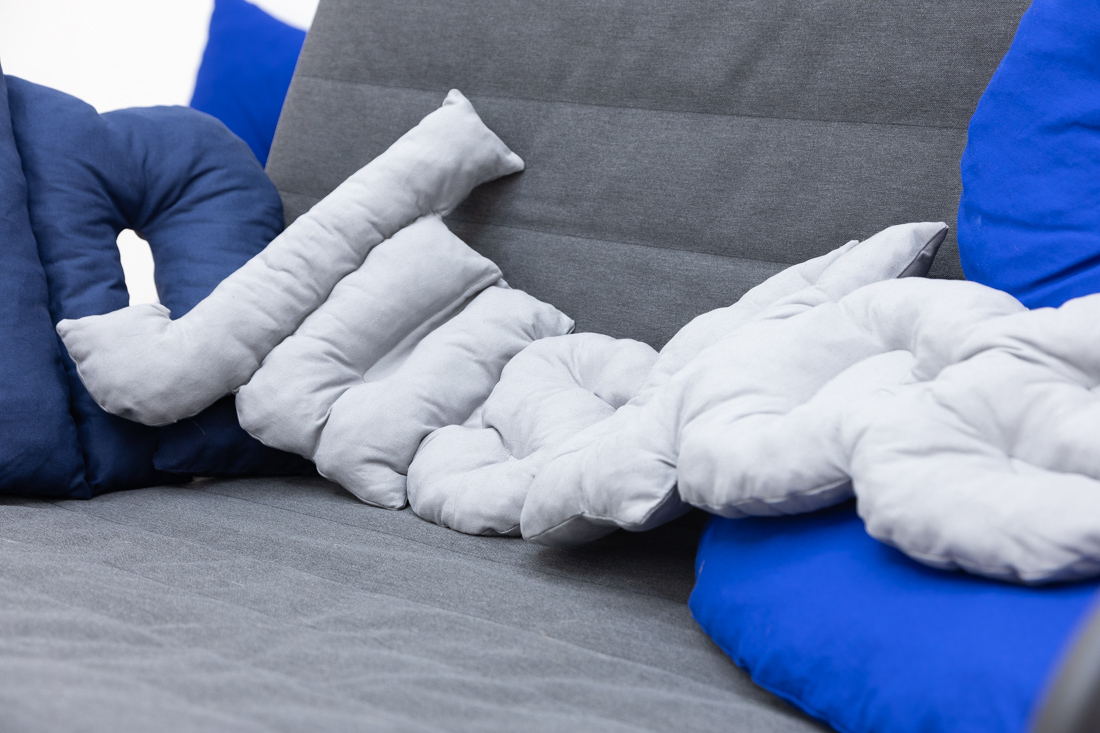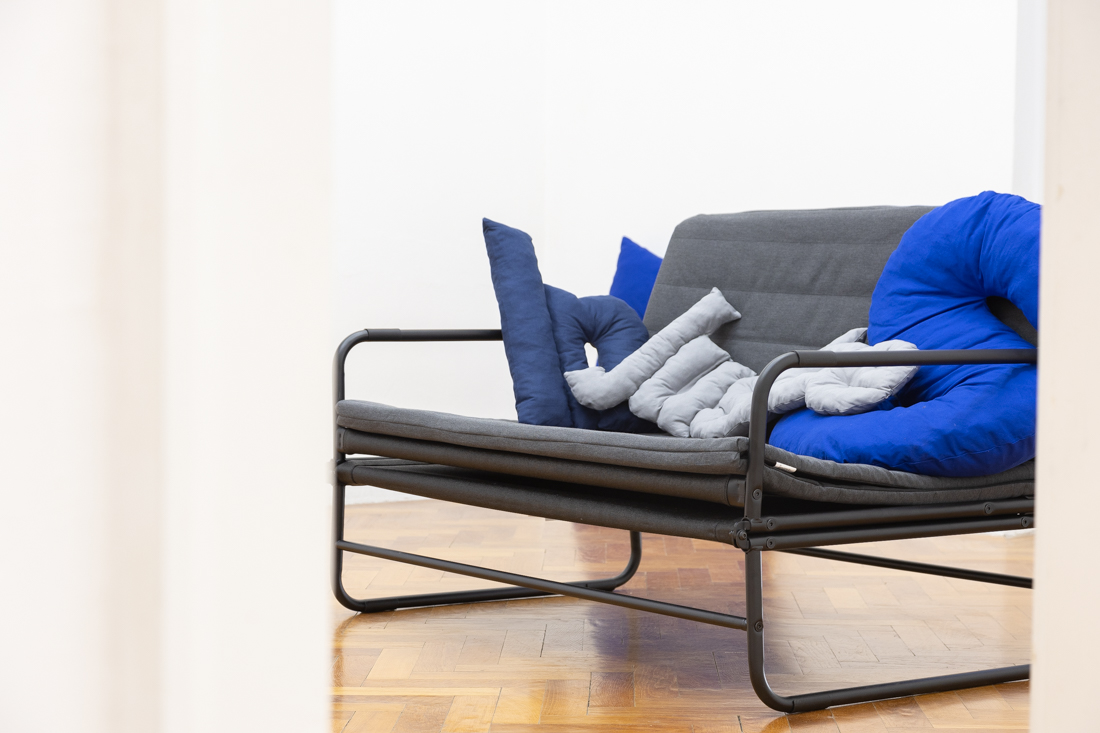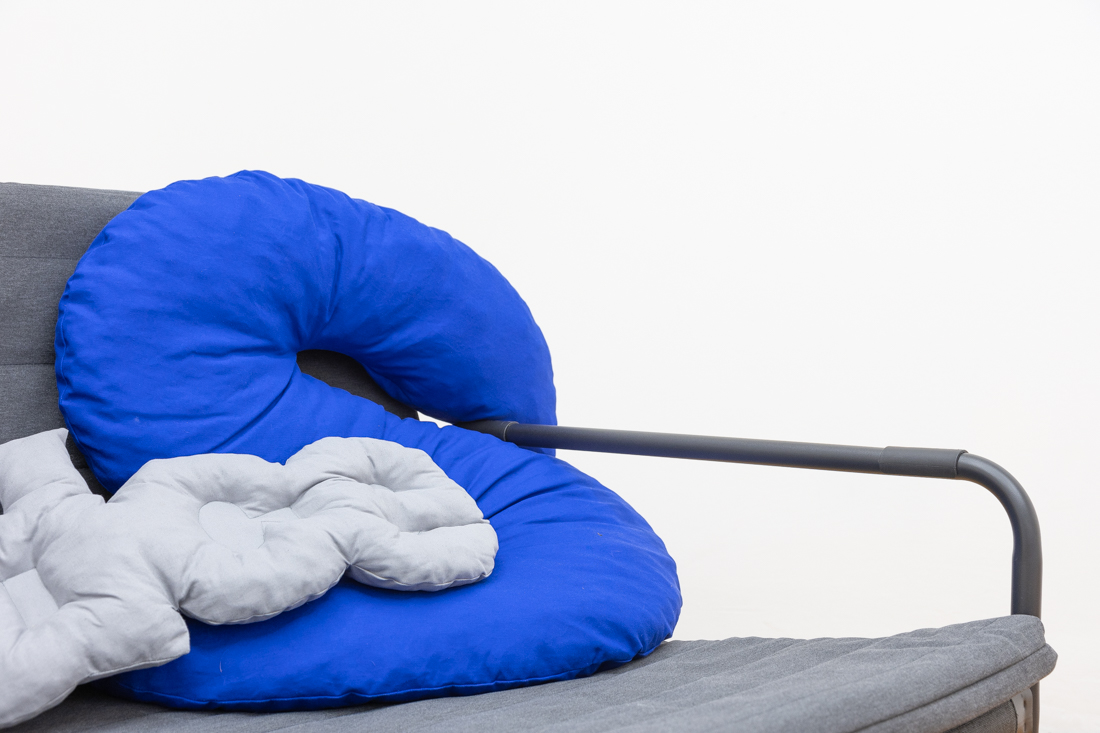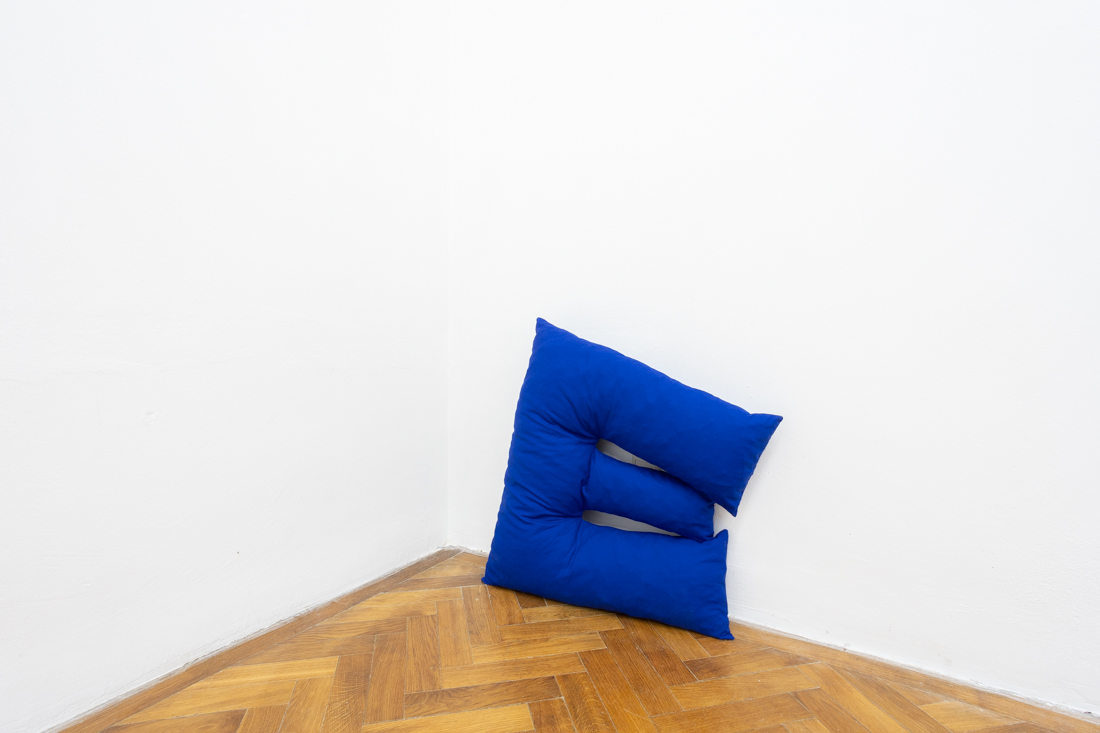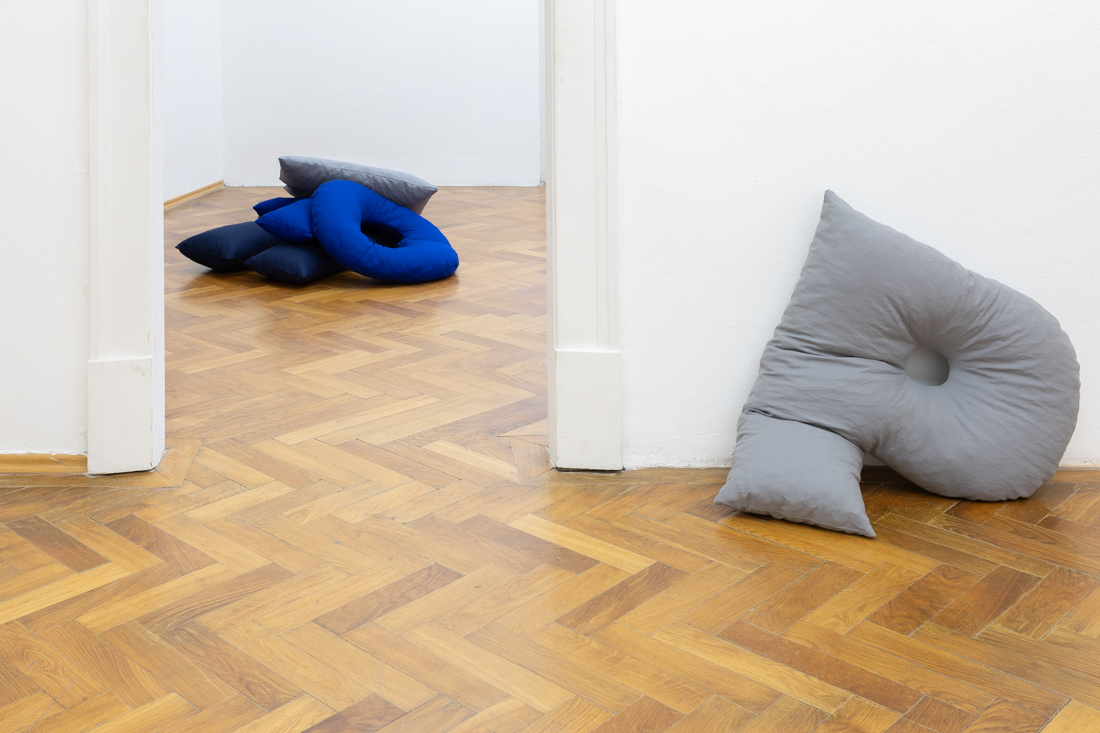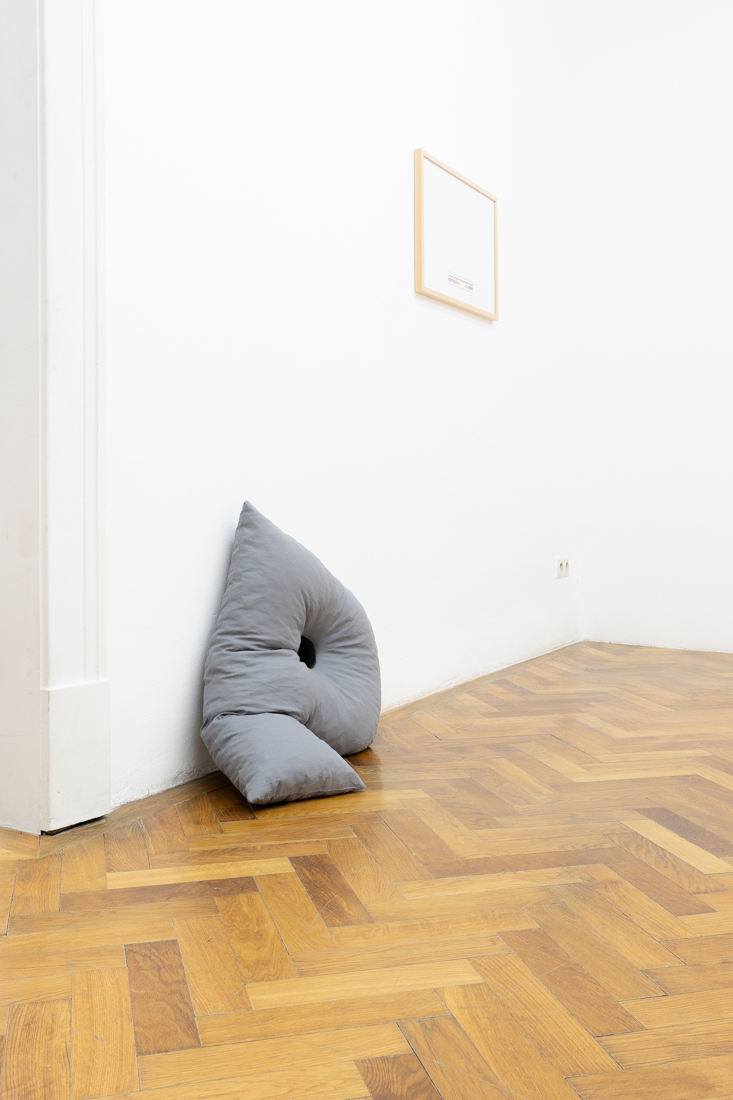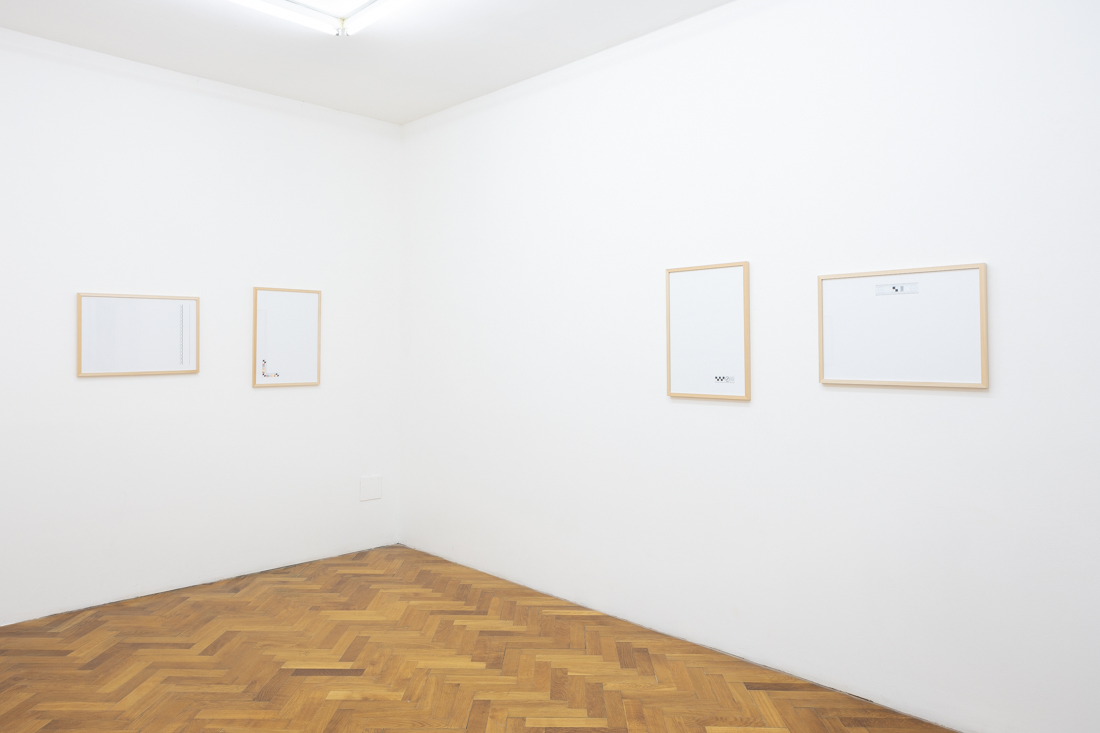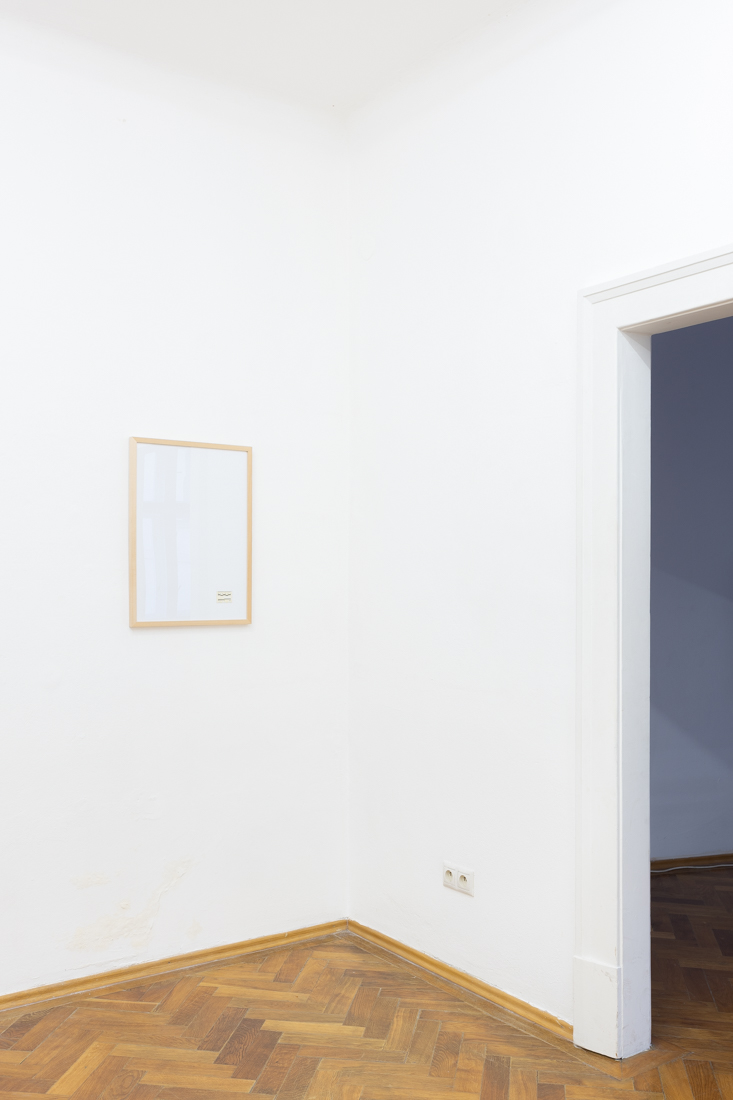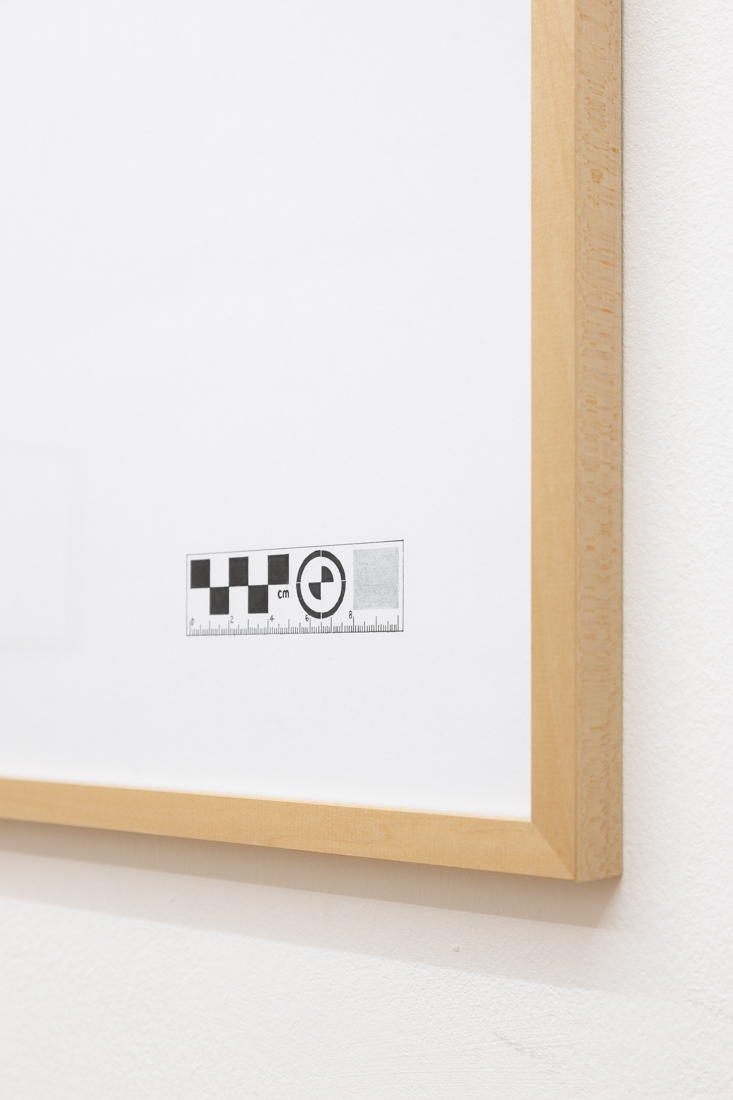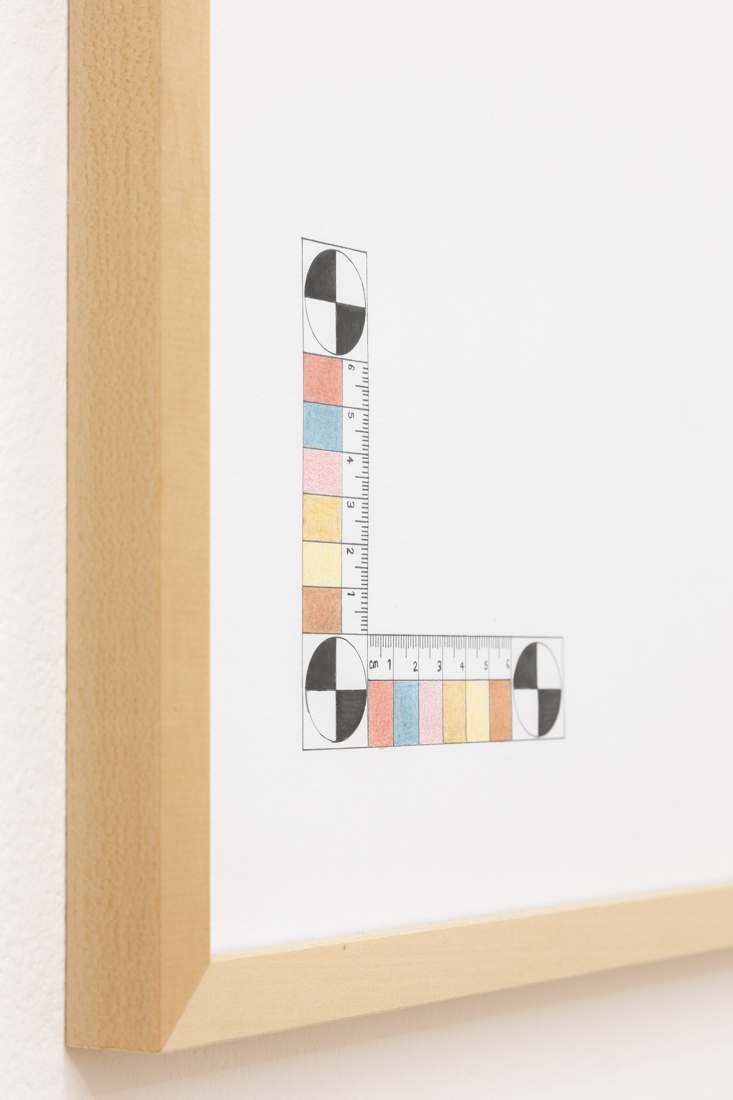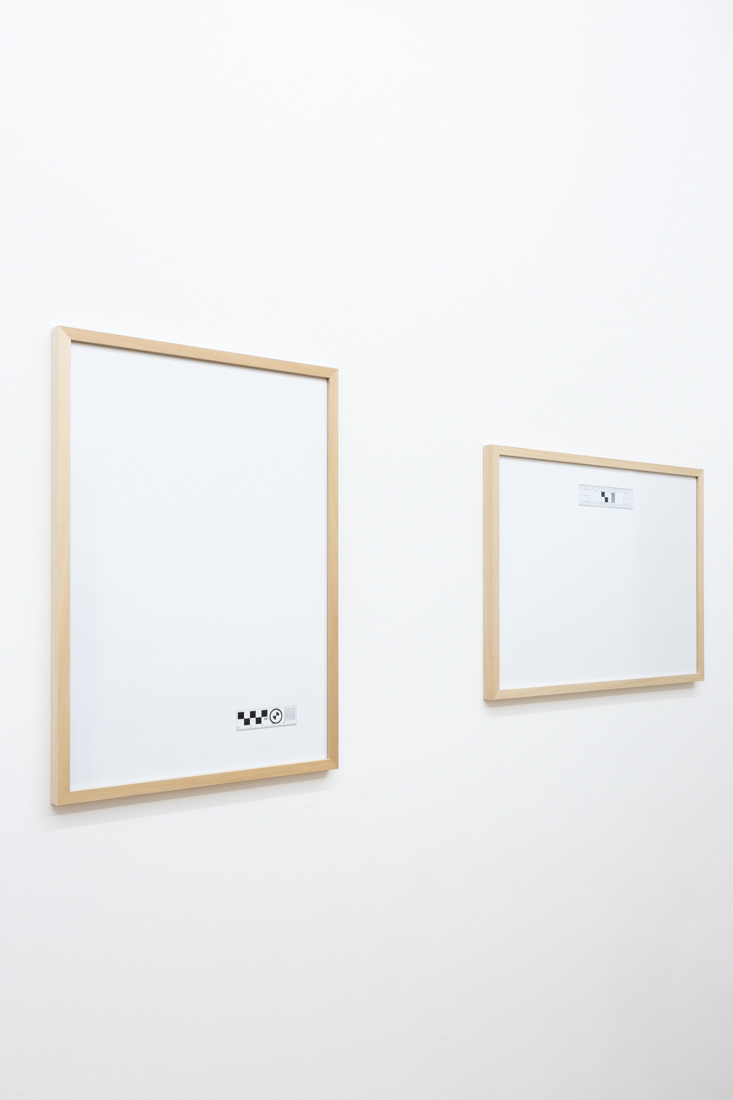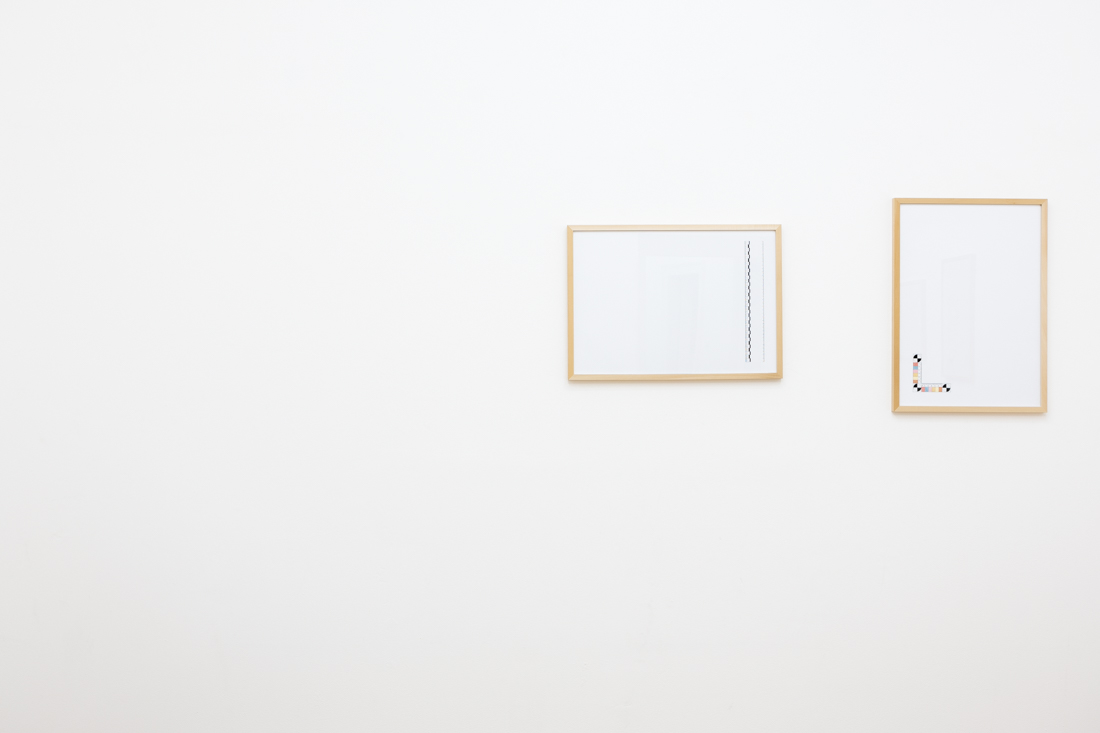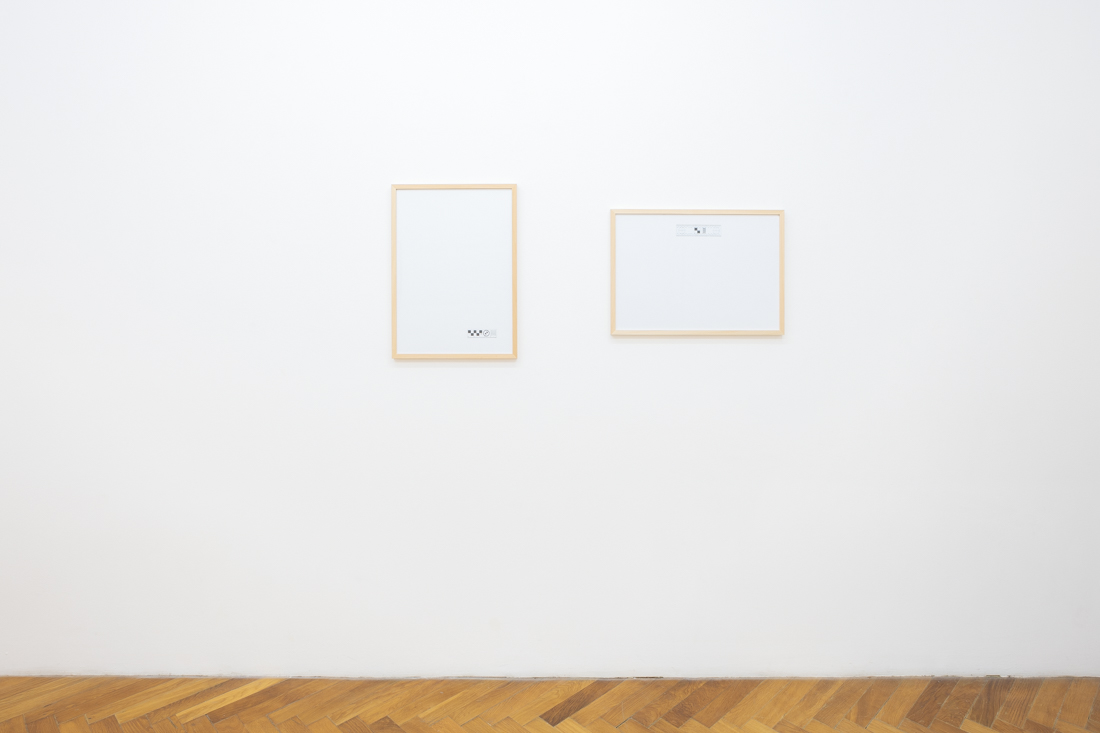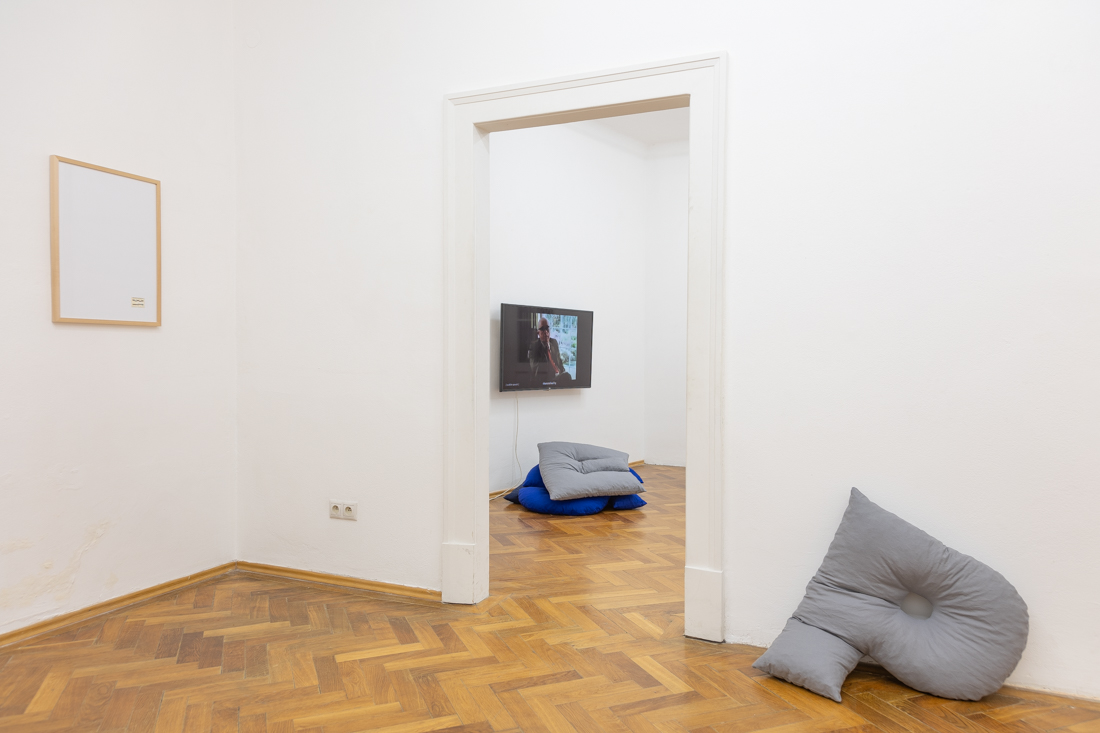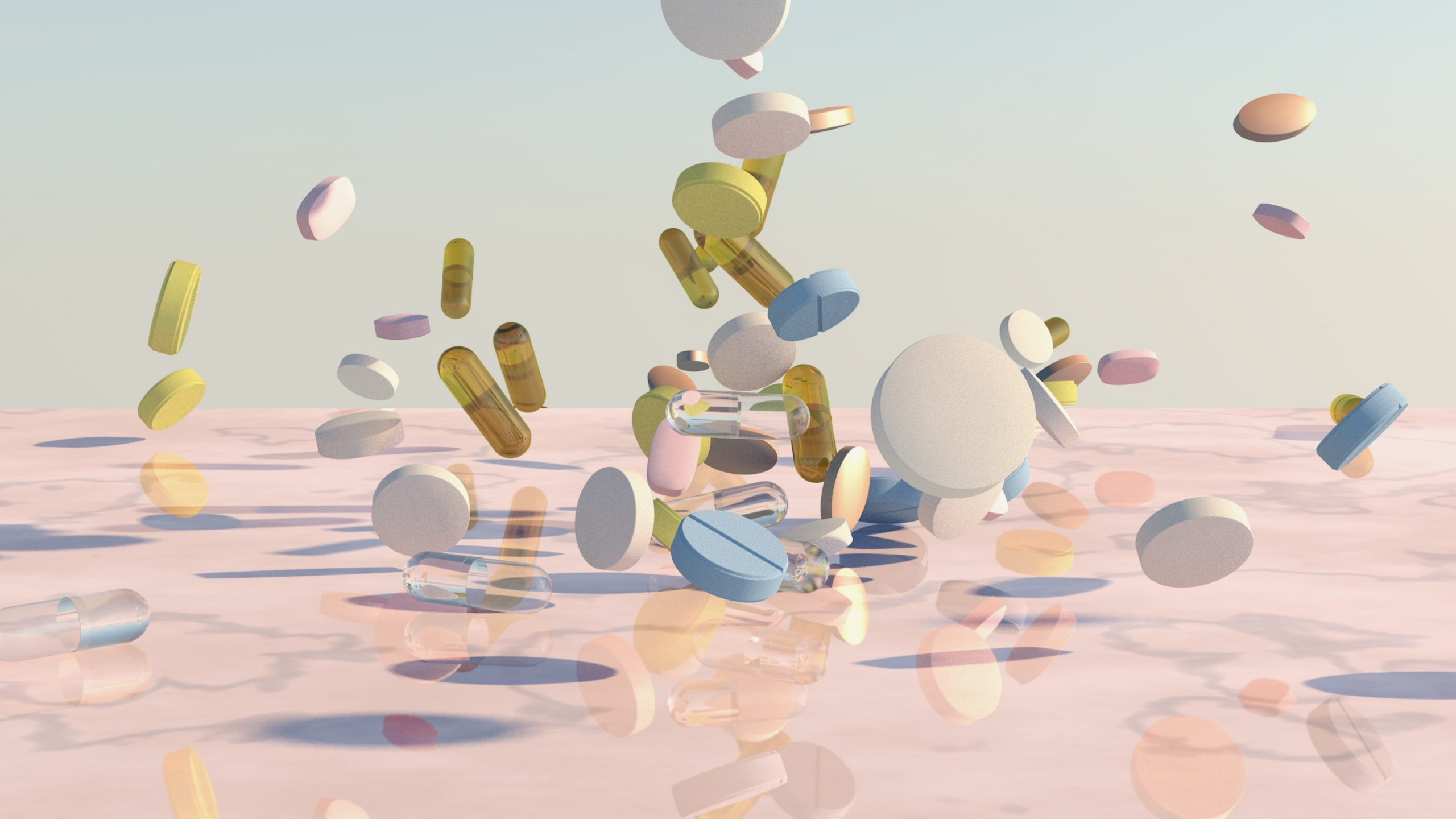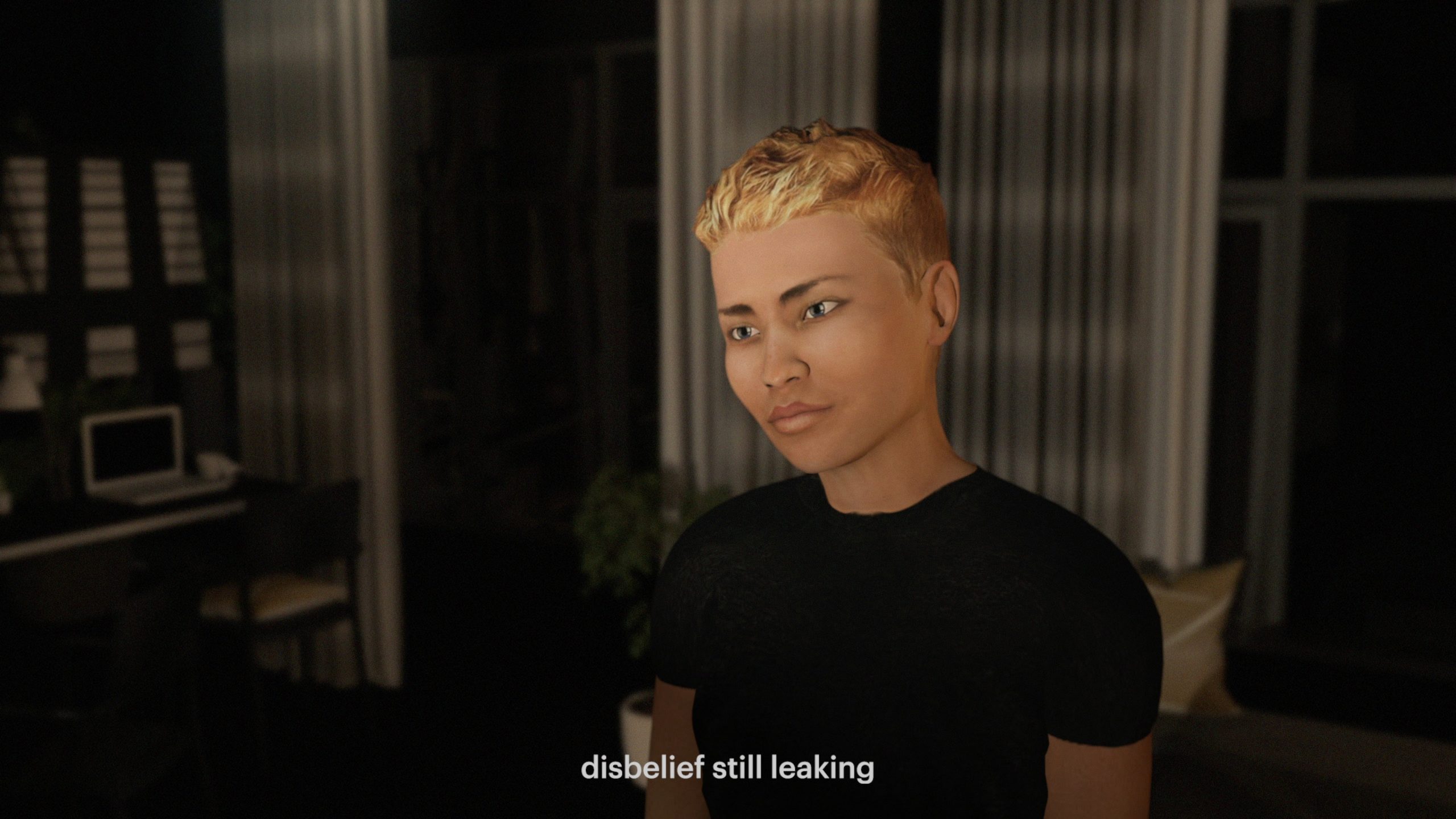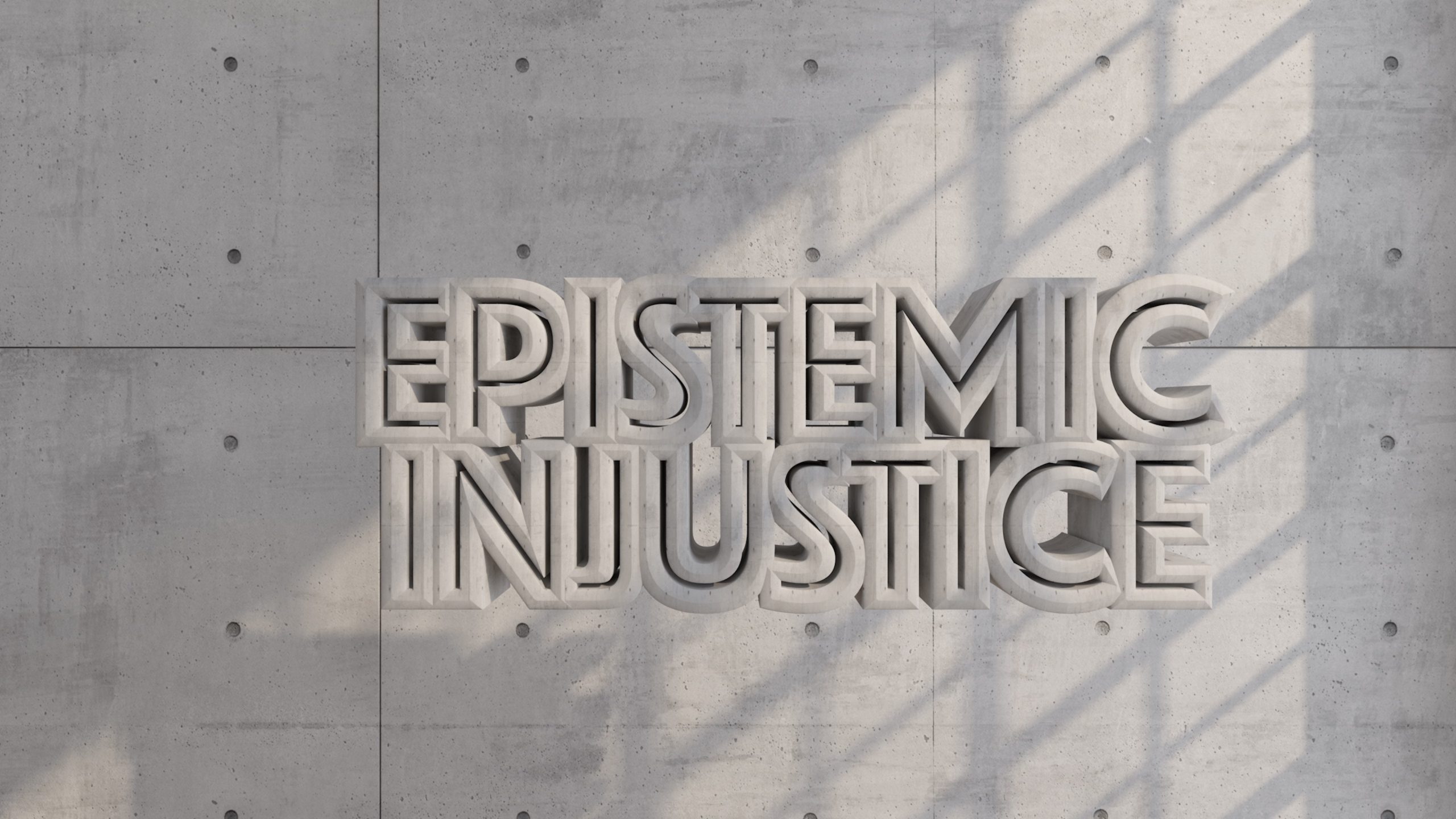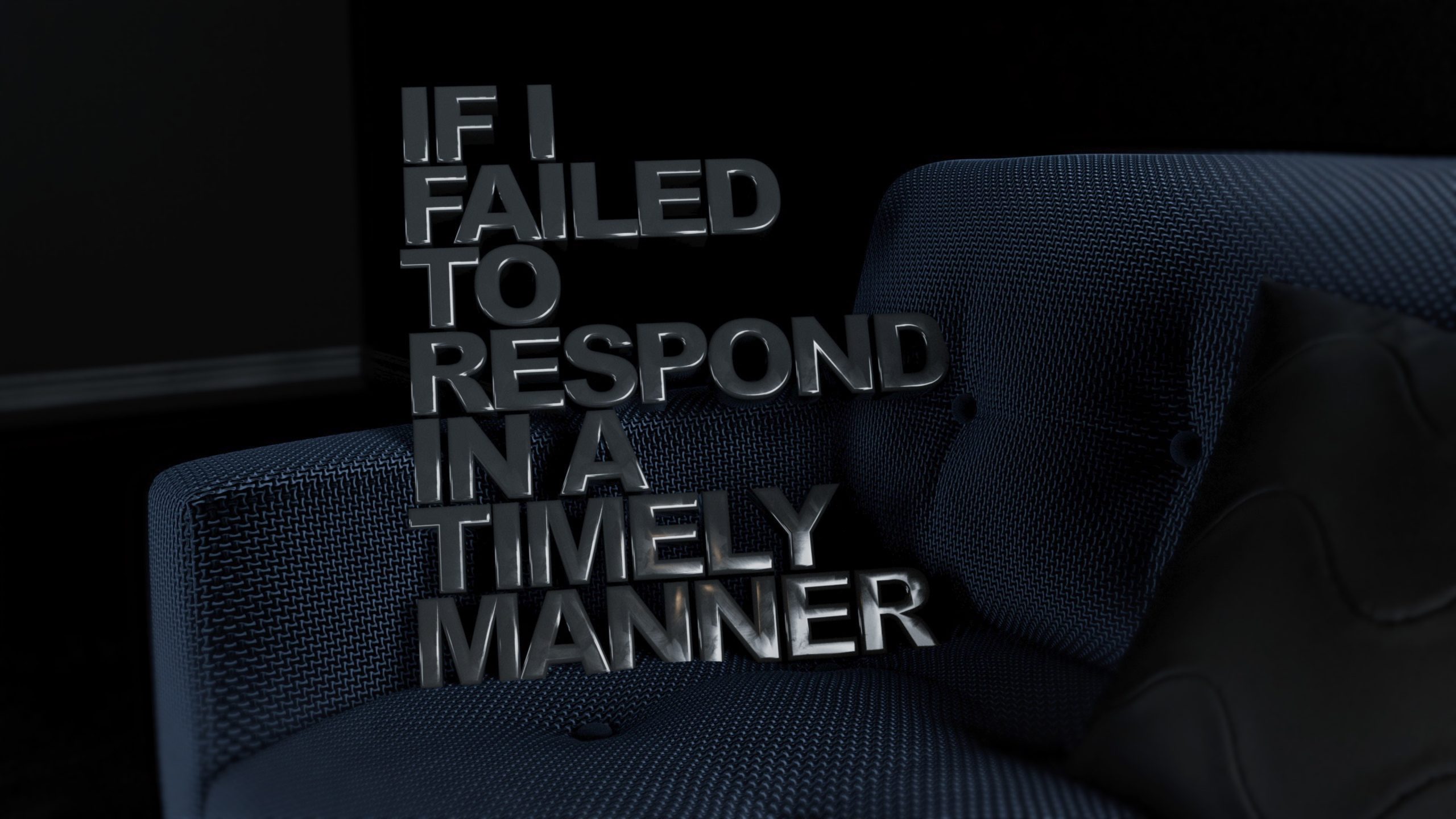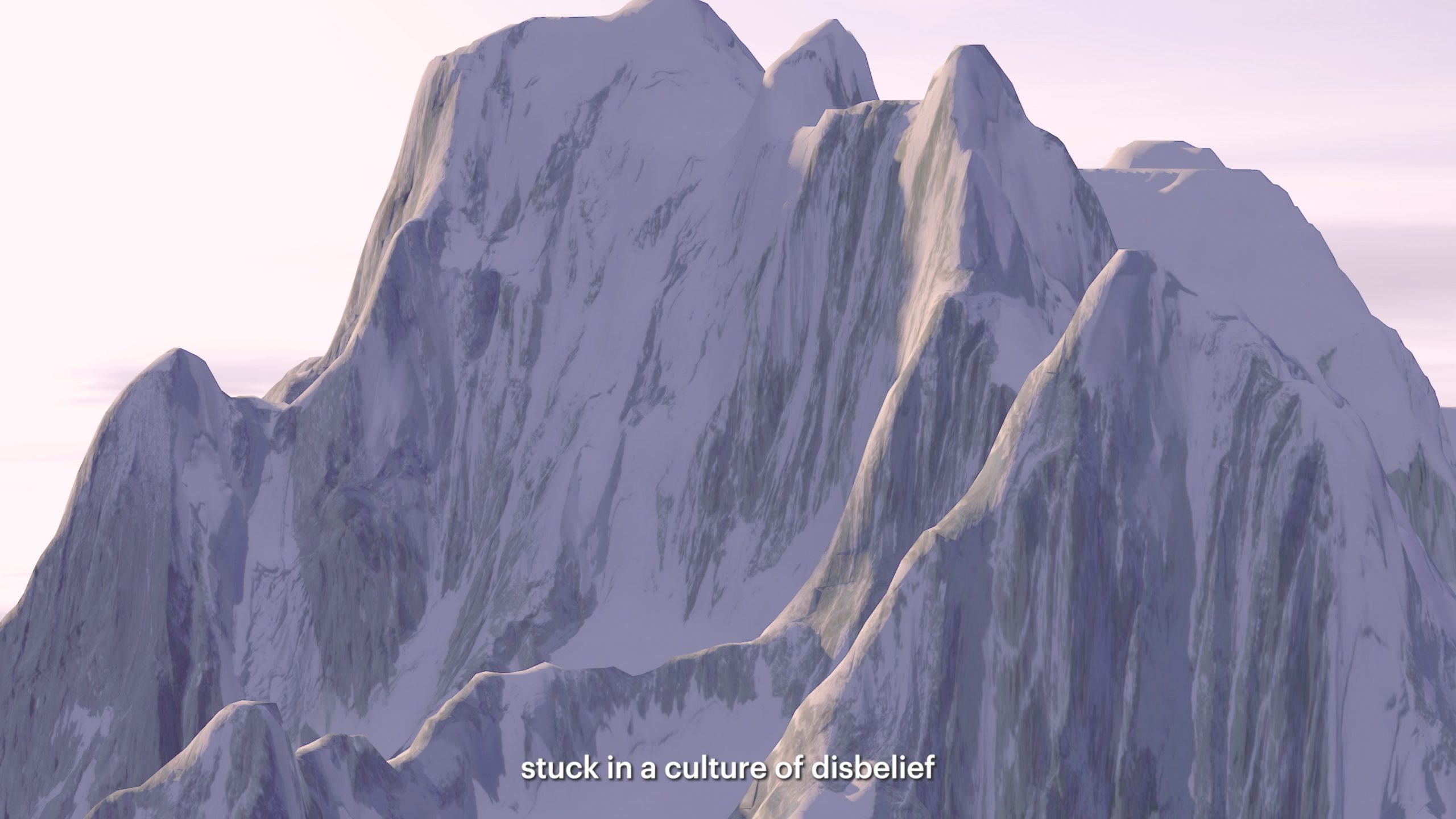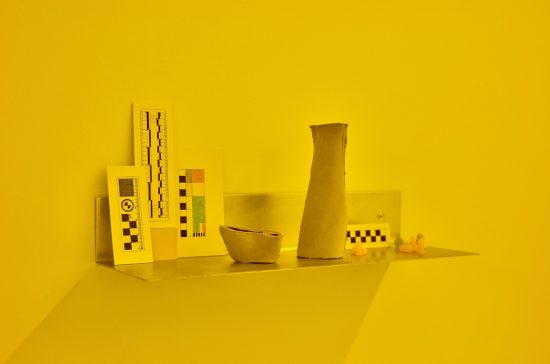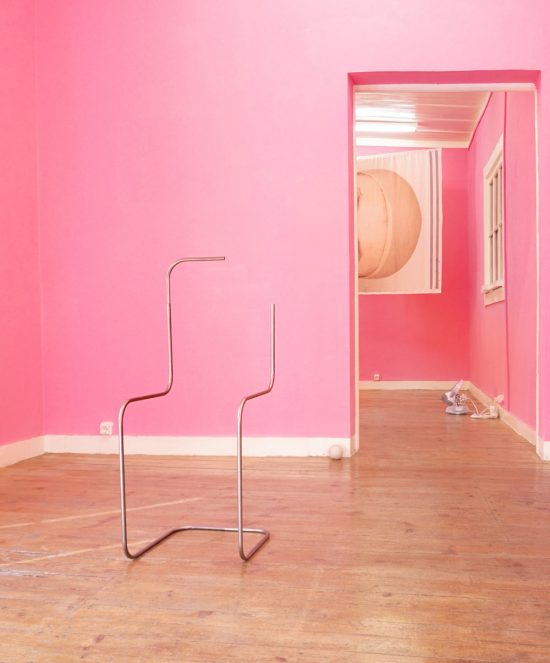Solo Exhibition, Phoinix, Bratislava
Measuring bodyminds against what is deemed ‘normal’, is the process through which the boundaries of ability/disability are formed and upheld. This process assumes that disability is a knowable, obvious and unchanging category, even as it is routinely disproved by fluctuating bodyminds, and realities that resist being seen by this operation.(1) The exhibition explores different aspects of this concern.
The 24 minute video work entitled Long-Covid and the Culture of Disbelief, examines the legacies of hysteria and disbelief in the condition ME (myalgic encephalomyelitis), that formed the vacuum of knowledge for current long-covid – a vacuum within which existing tests cannot see these bodyminds as anything other than ‘normal’ even when obviously sick. Individuals whose lives are shaped by such disability dis-identifications often experience a kind of bodily/textual dissonance, in which their experiences are displaced and superseded by a written authentication that overwrites their own bodily knowledge.(2) Socio-medical power relations and a politics of epistemic practice wield the power to confirm or deny the reality of everyone’s bodily experience.(3)
Soft cushions as letters spelling ‘EPISTEMIC injustice’, adorn the space. A harsh word made soft, and for visiting bodies to sit on, a place to rest and to watch the work. Woven through the artist’s personal accounts, the video narrative revolves in crip time – thinking through crip time as edited-time conflated with the extended time of sickness, and as time that dis-orientates the past socio-medical injustices with the embodied feelings of long-covid. A feeling of being caught between the suspension of disbelief and belief, or of being stuck in the culture of disbelief, is texturally explored through imagery that combines CGI with found, archival and the artist’s home VHS footage.
The series of drawings based on forensic calibration scales used to measure bodies, are made by a careful, precise hand, with inevitable human error, the drawings seek to crip the system of measure at play.
1 – 2014, Samuels, Ellen. Fantasies of Identification: Disability, Gender, Race. NYU Press, US.
2- ibid
3 – 1996, Wendell, Susan. The Rejected Body. Feminist Philosophical Reflections on Disability, Routledge, UK.
The programme of the gallery is supported by the public funds provided from Slovak Arts Council.
